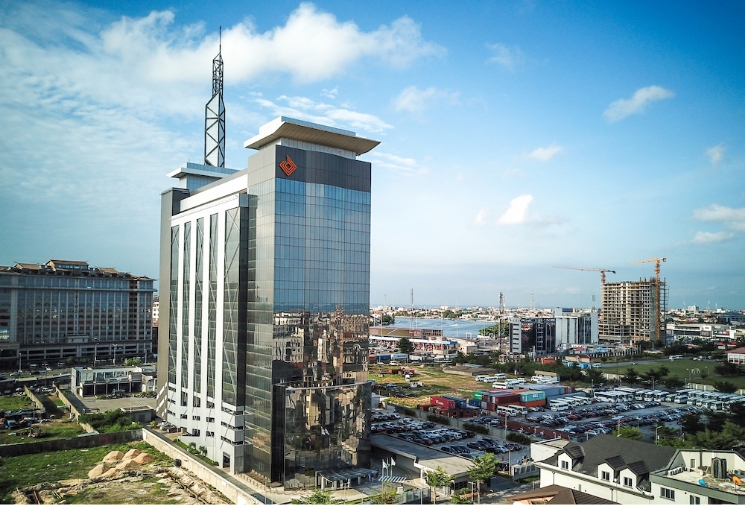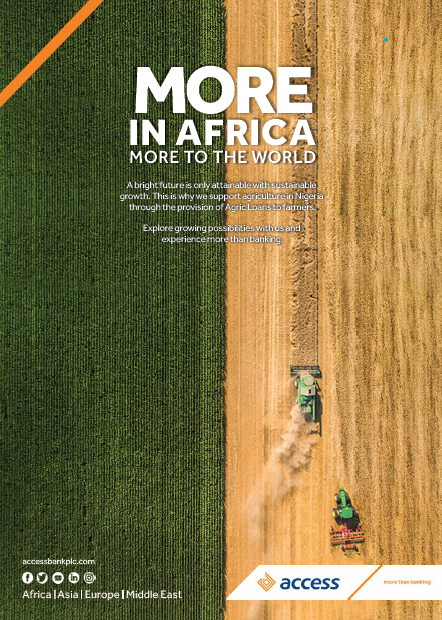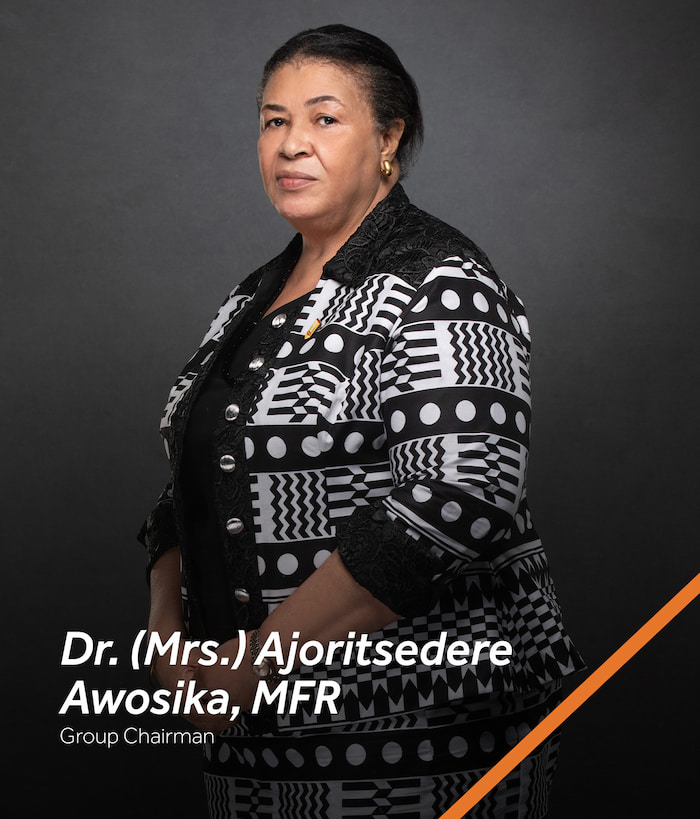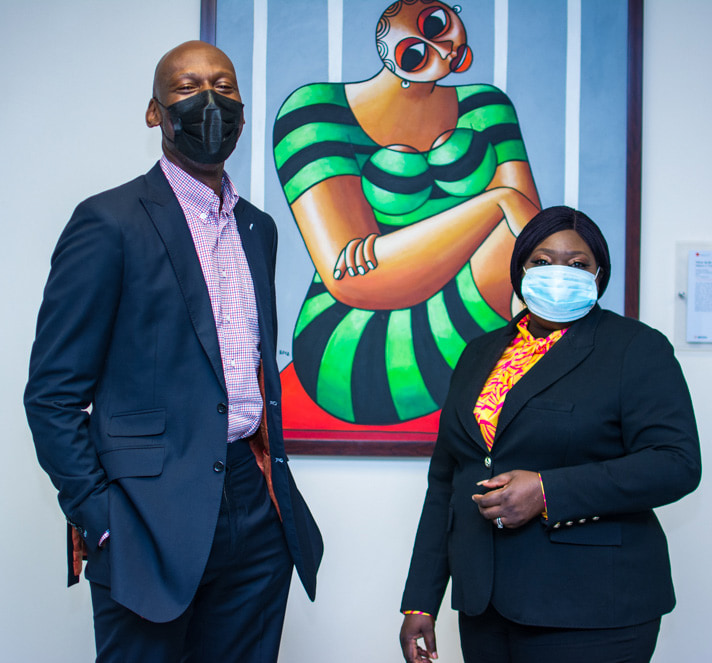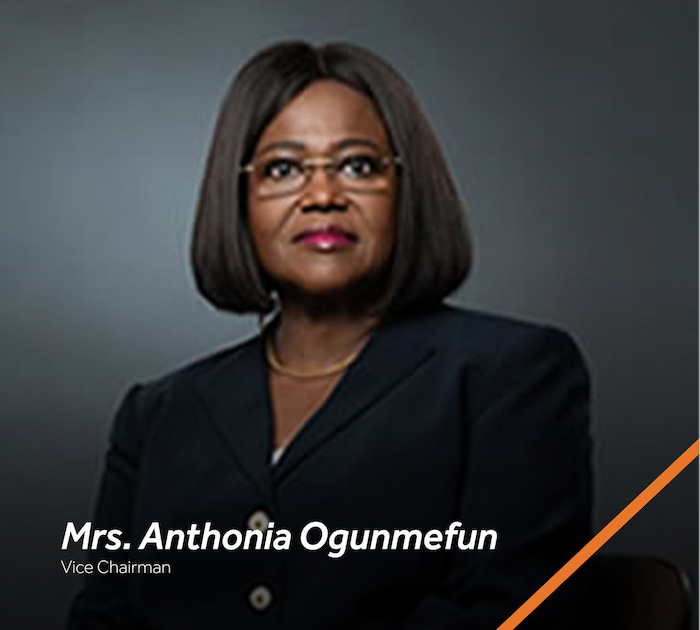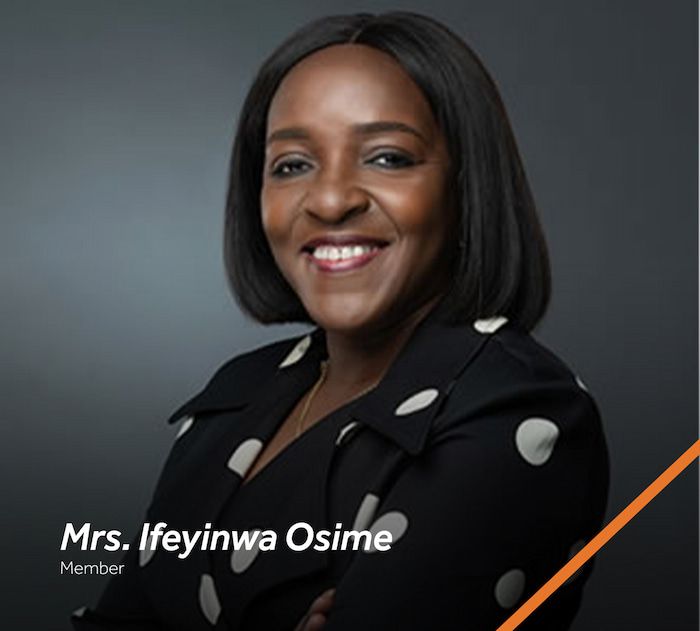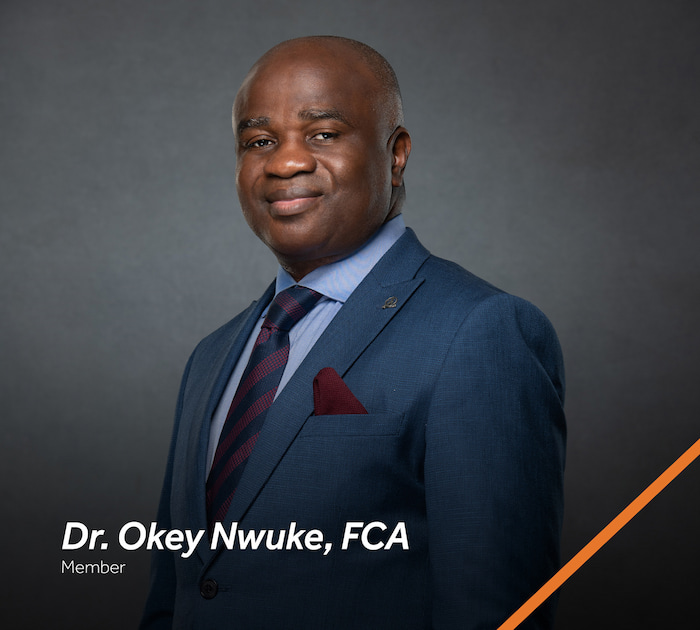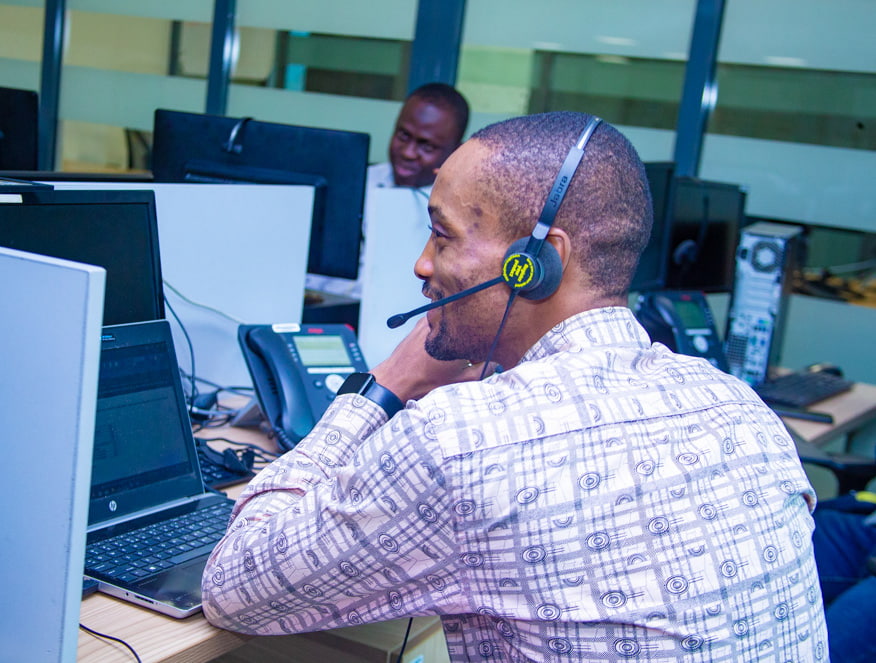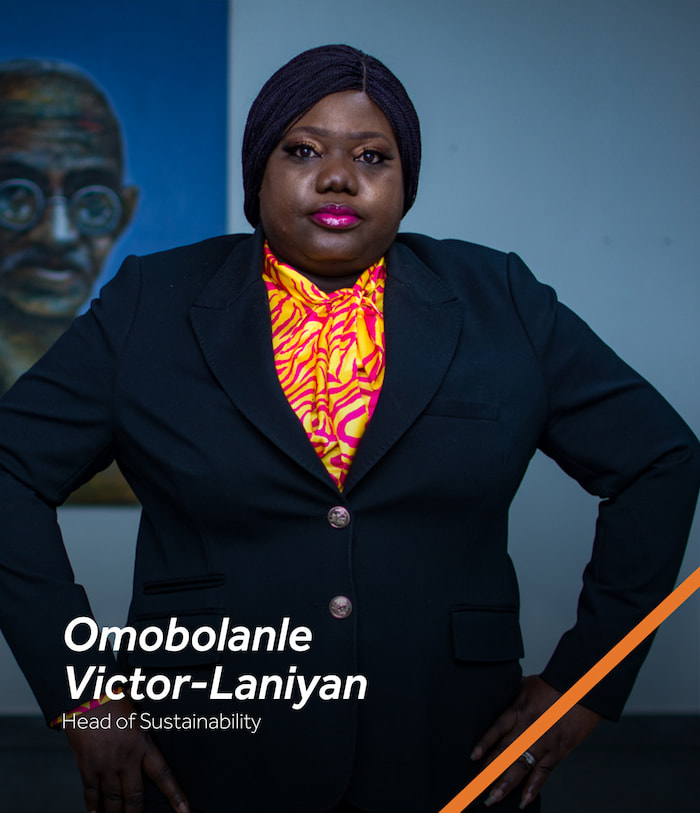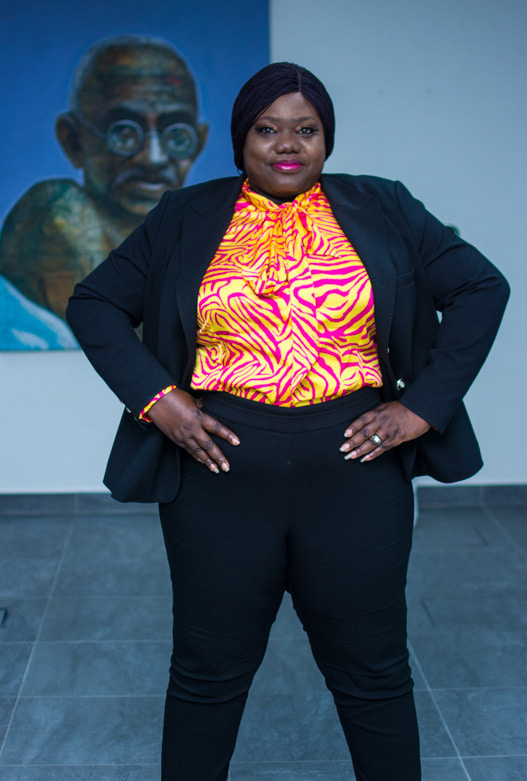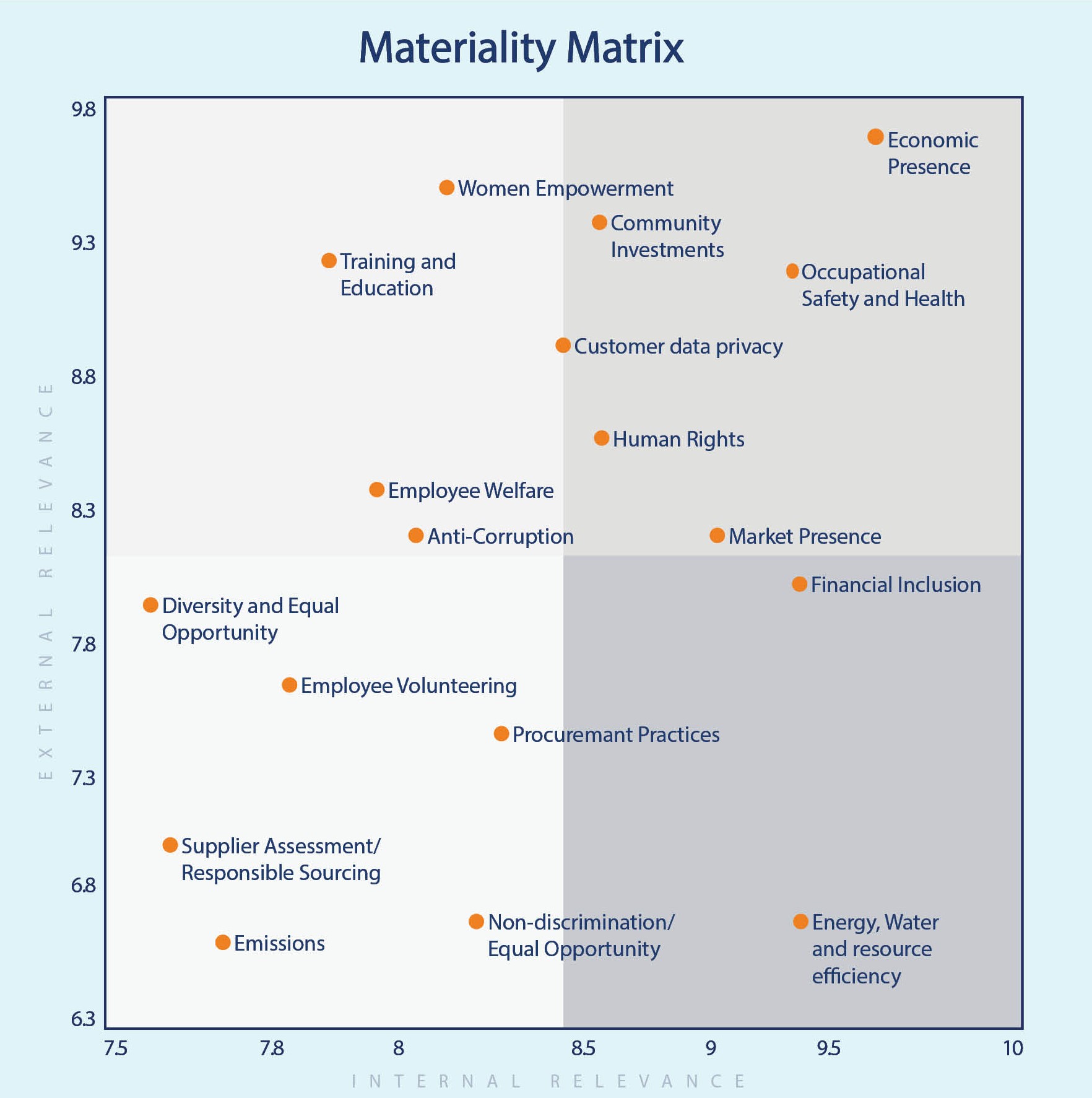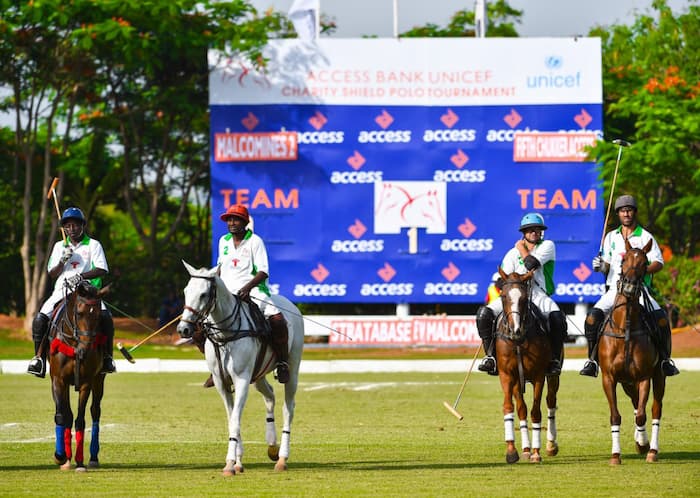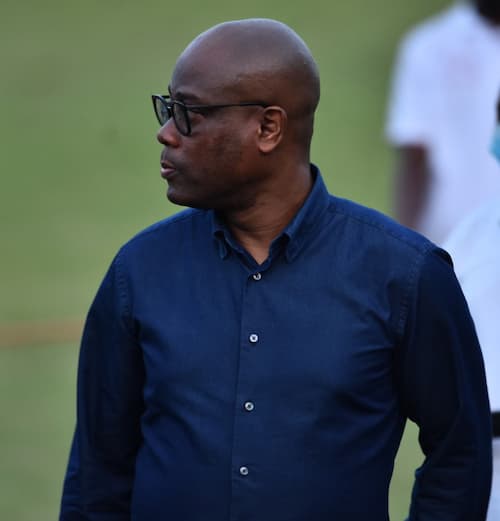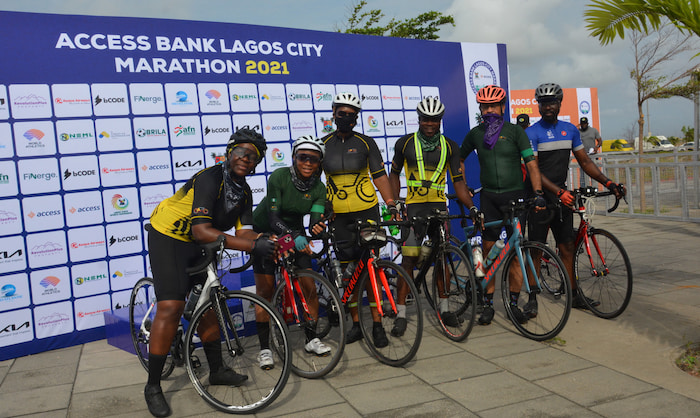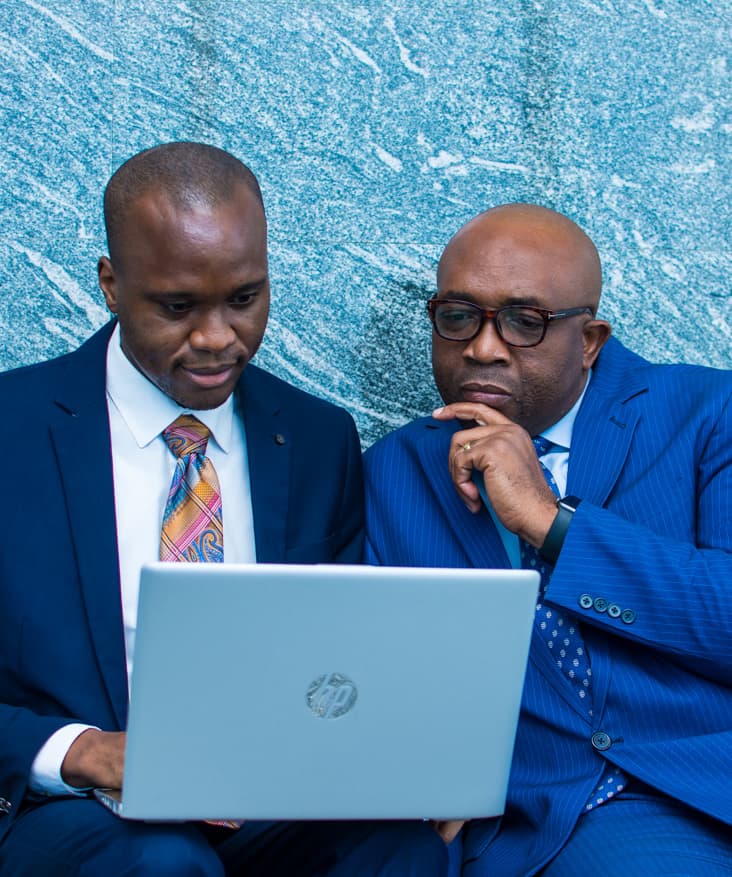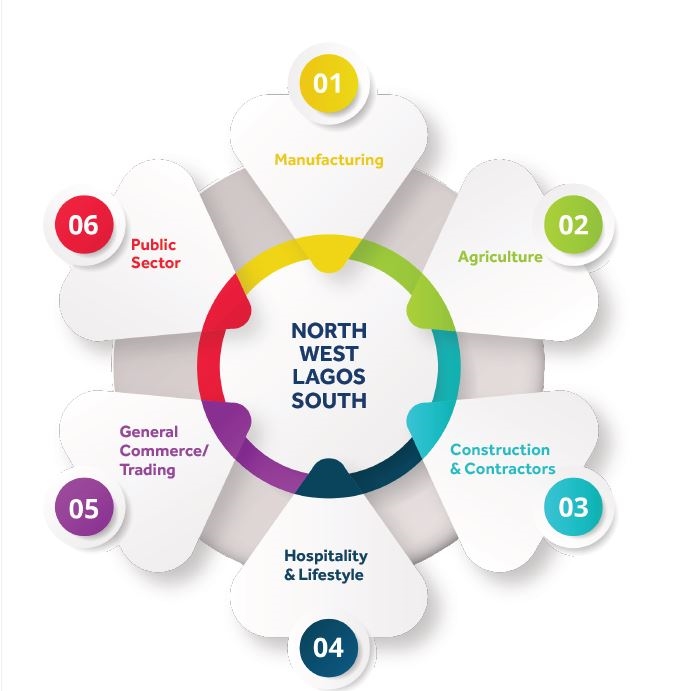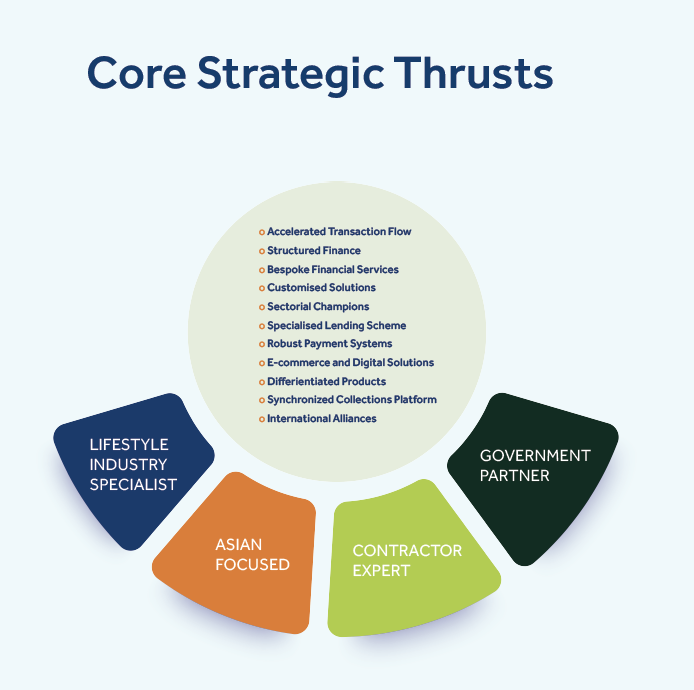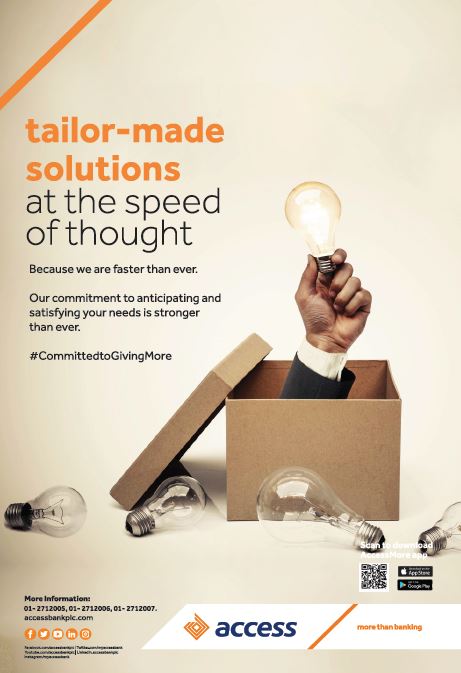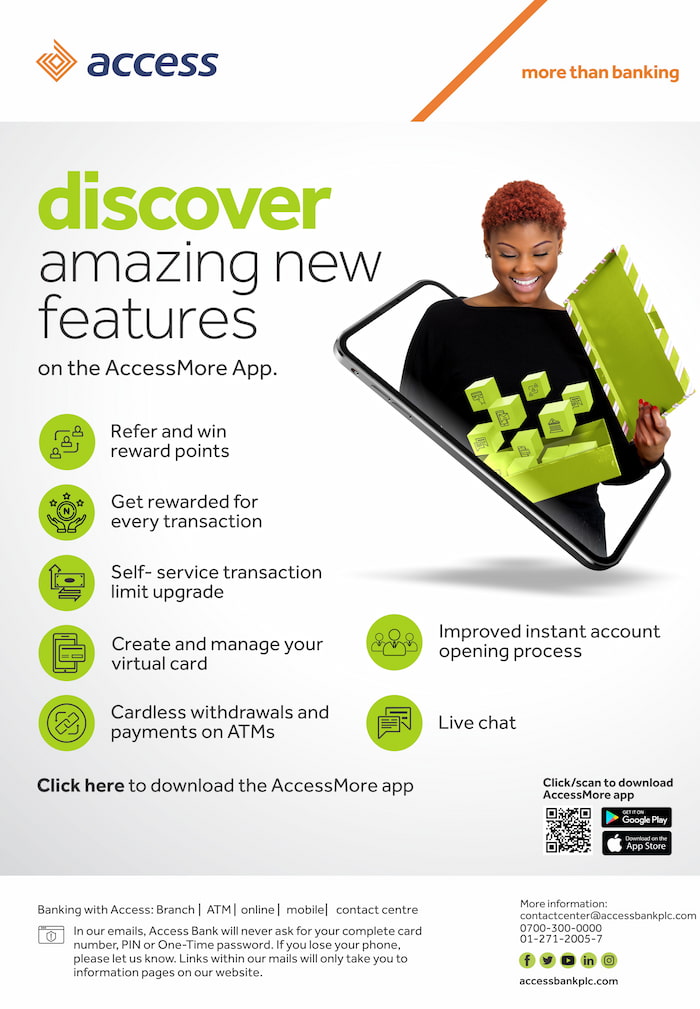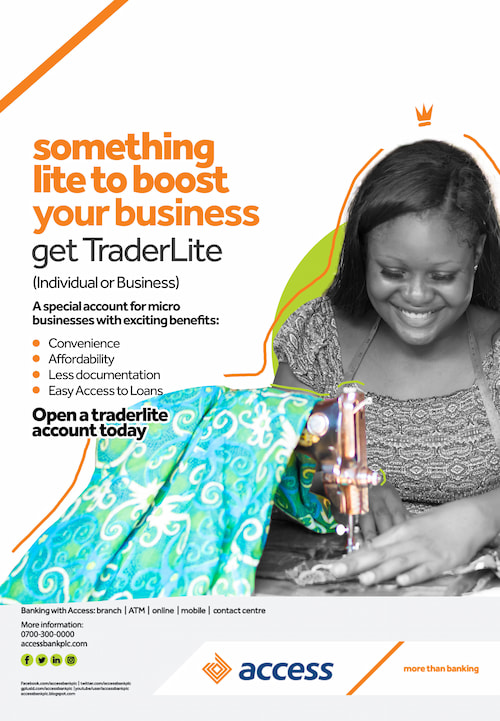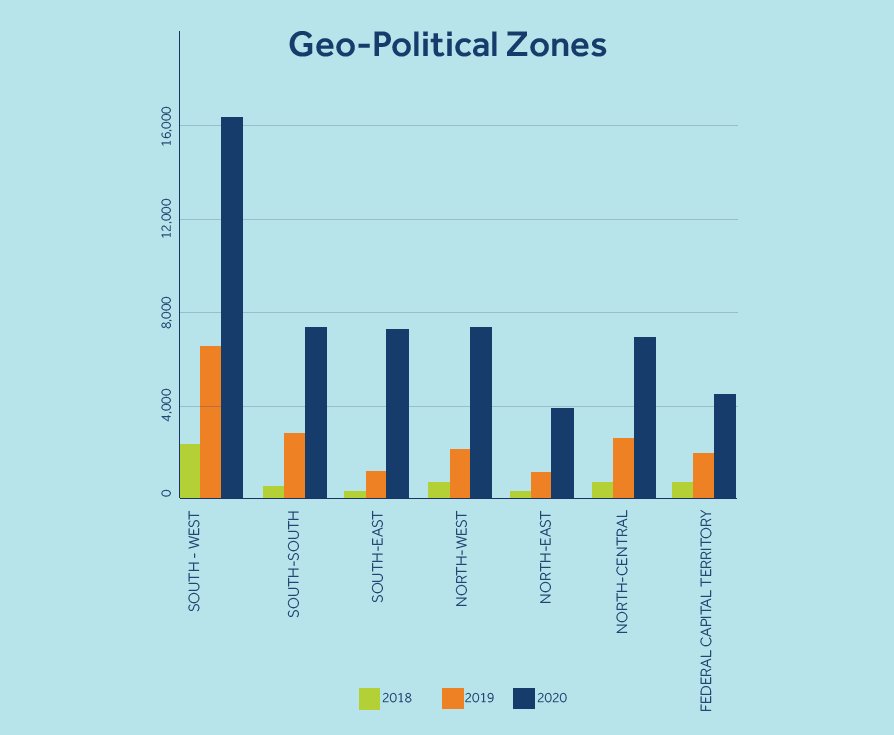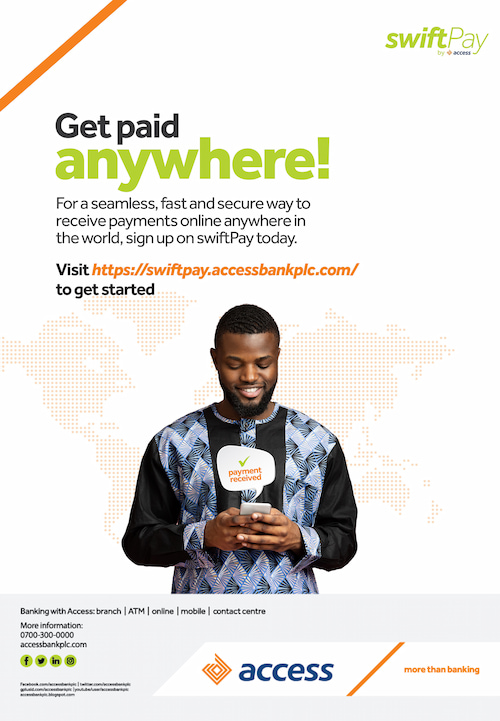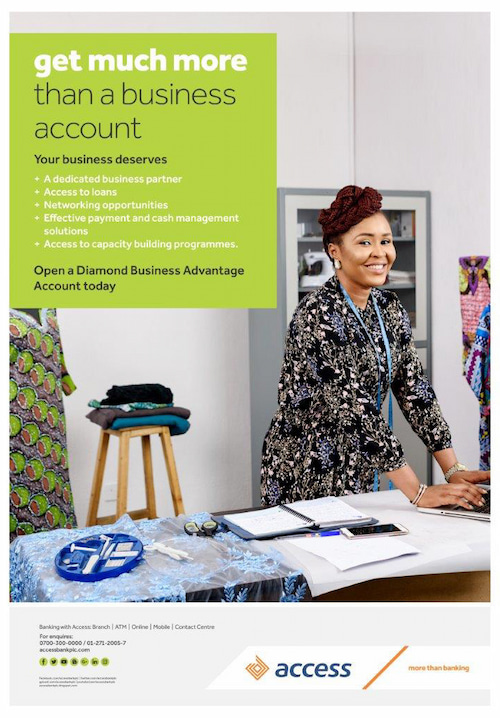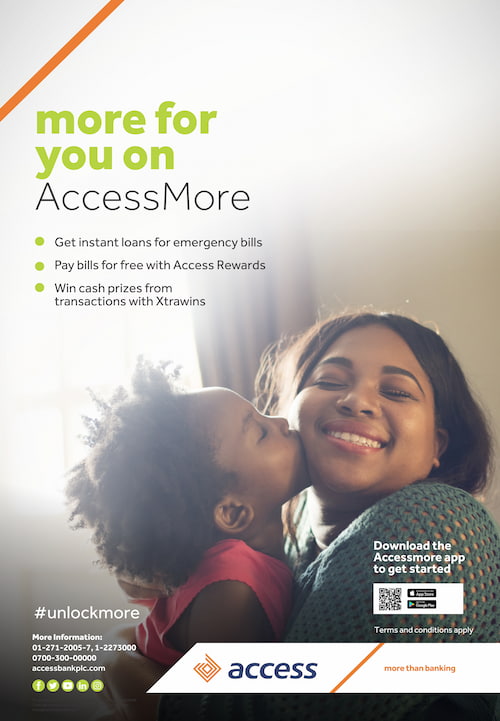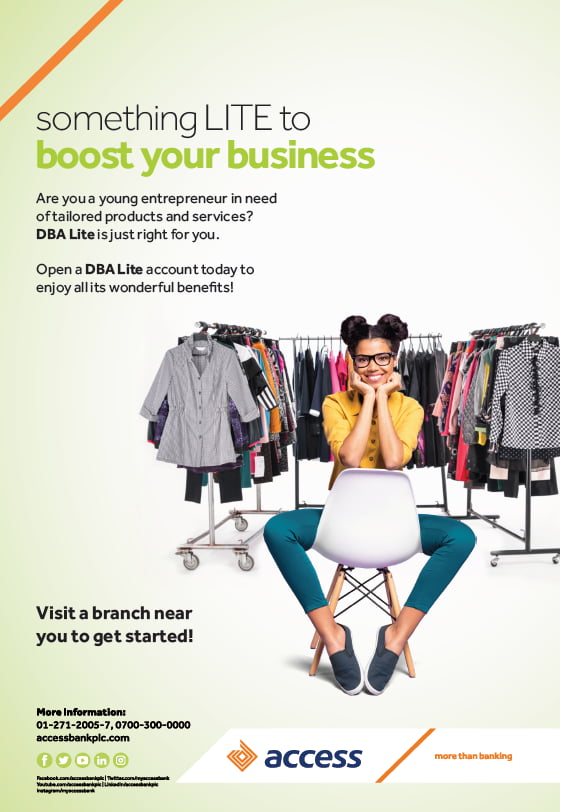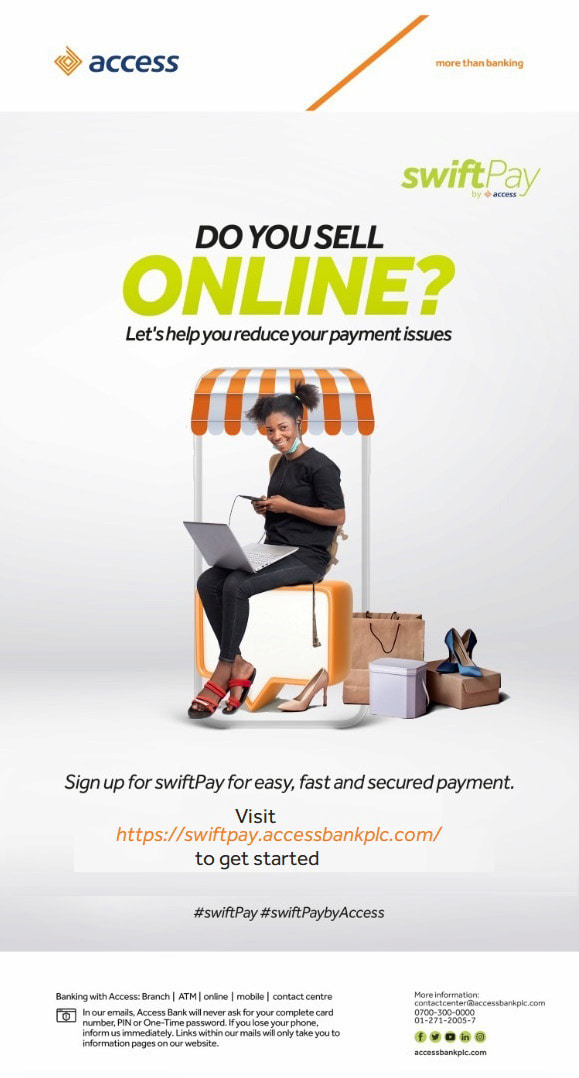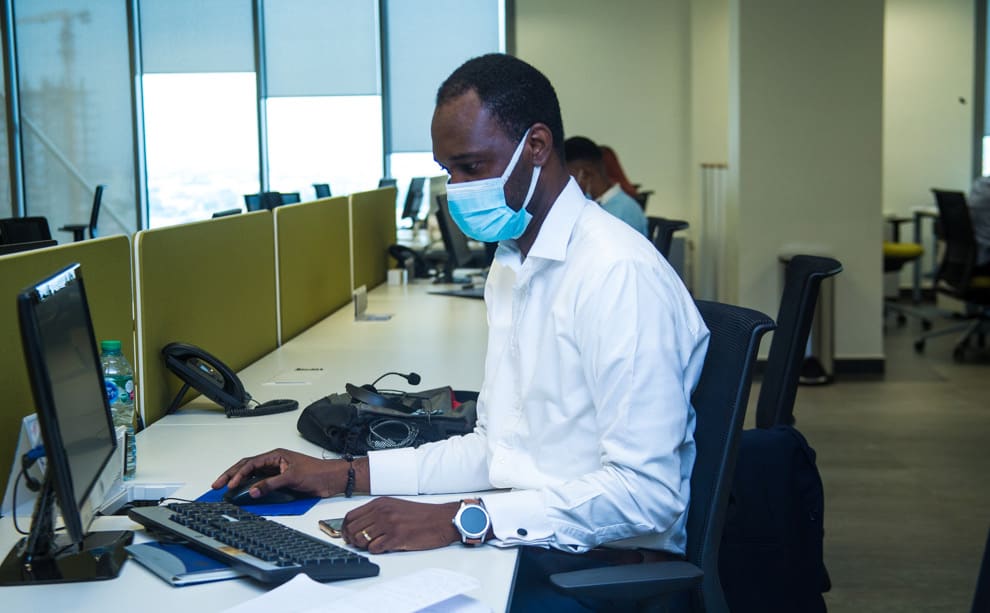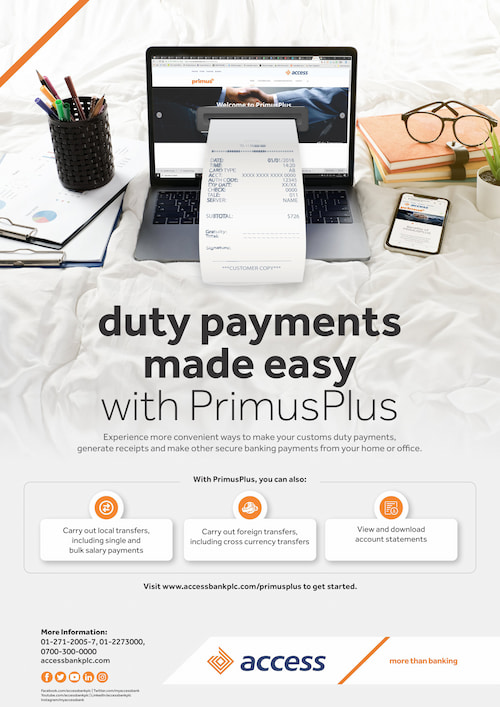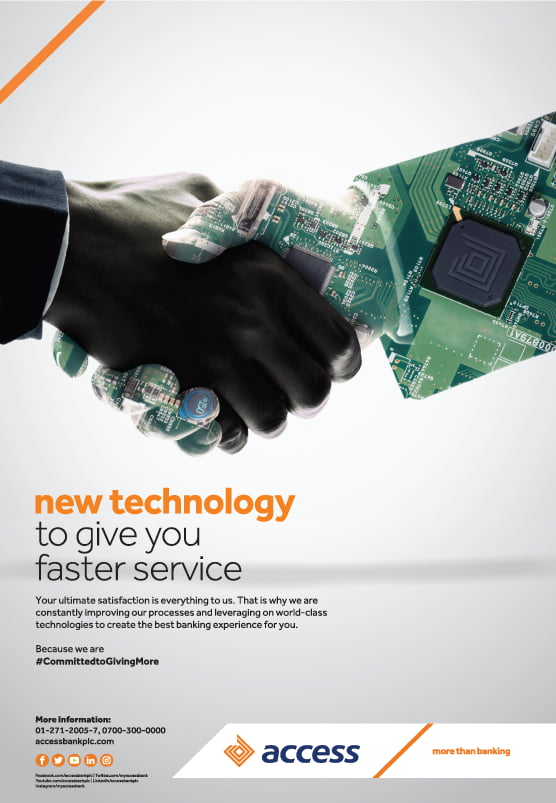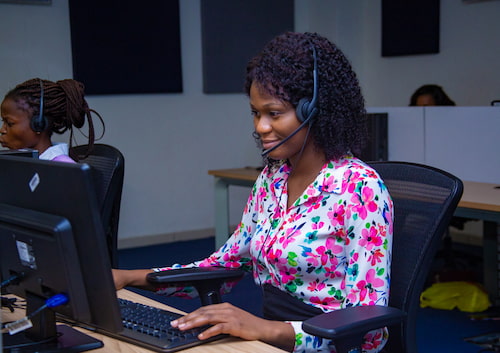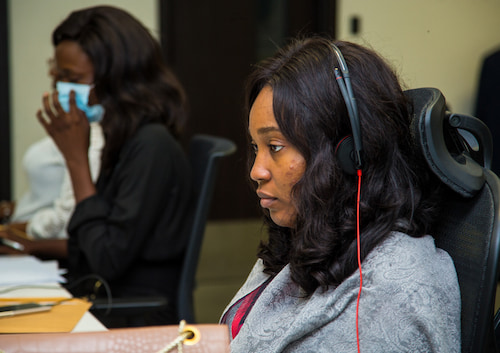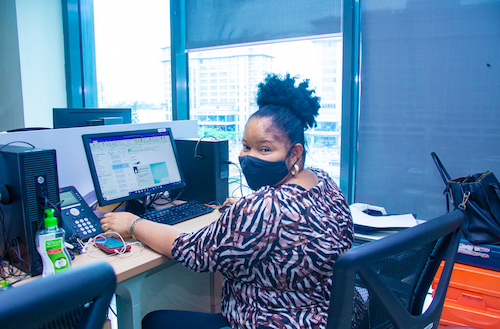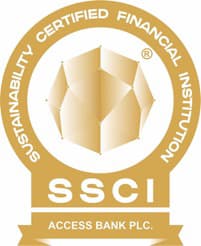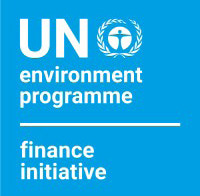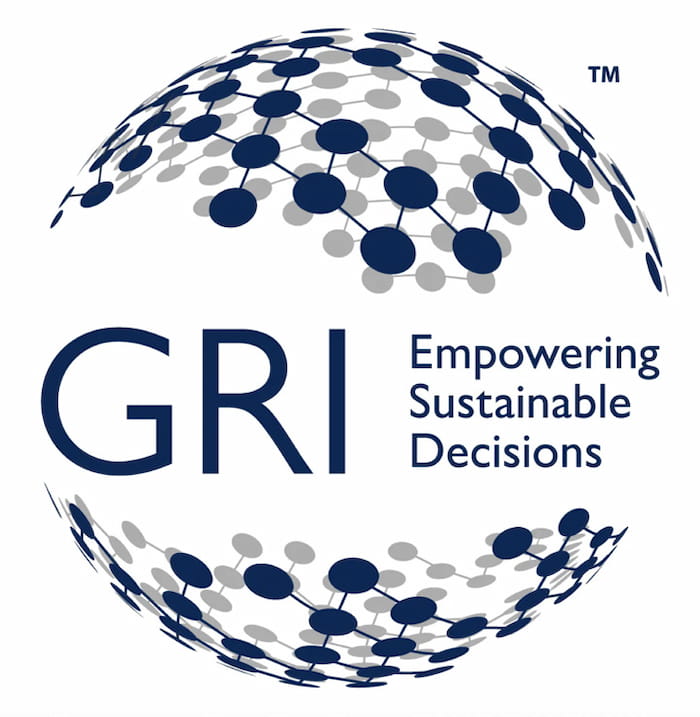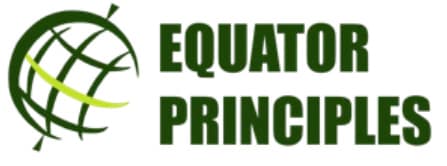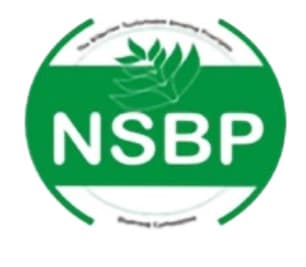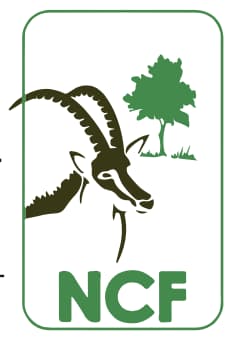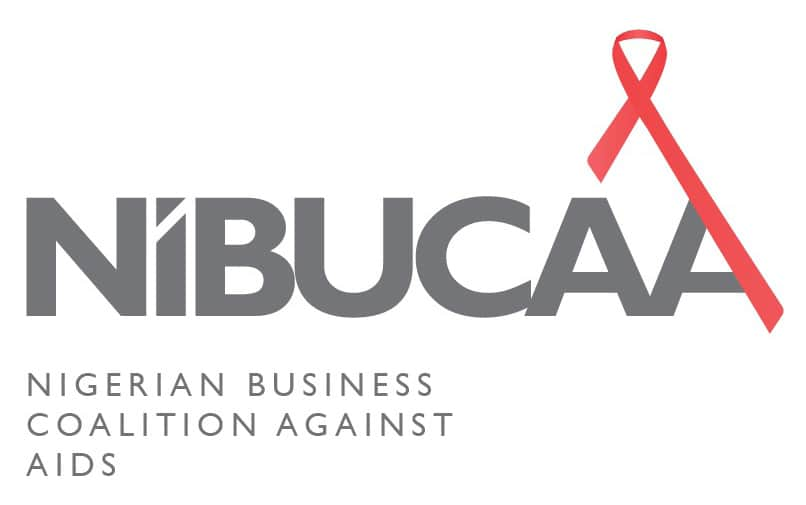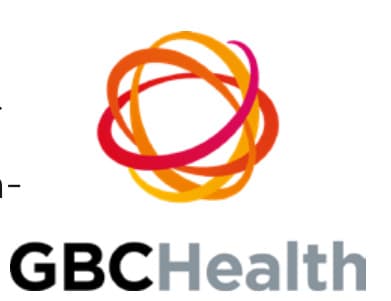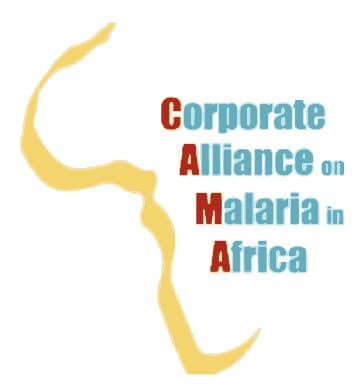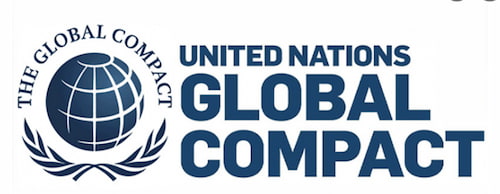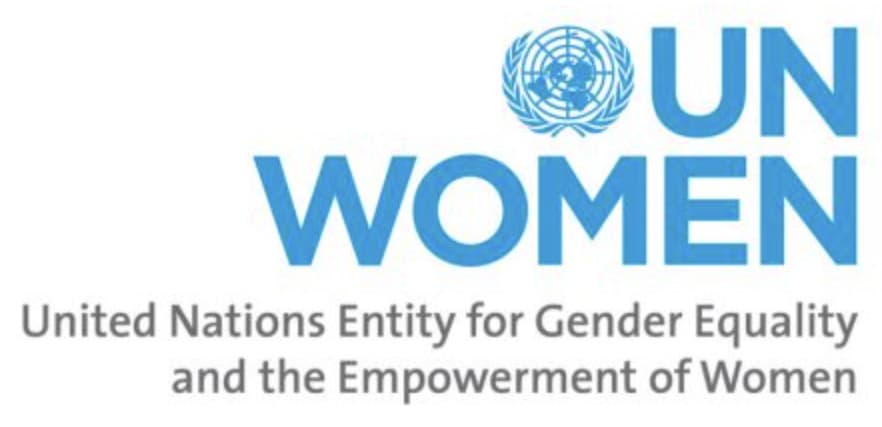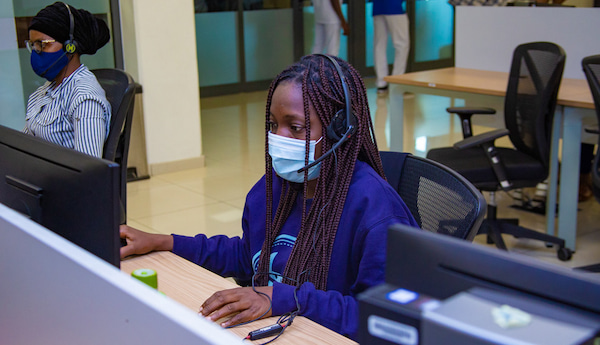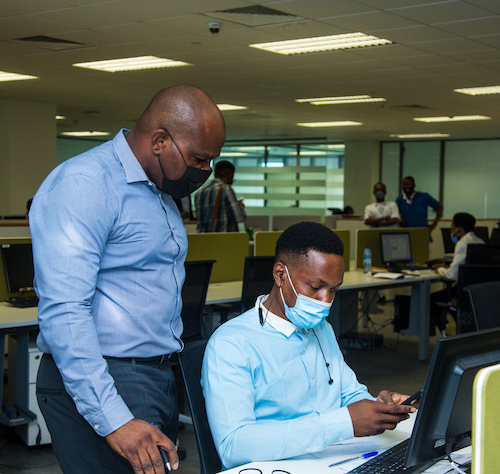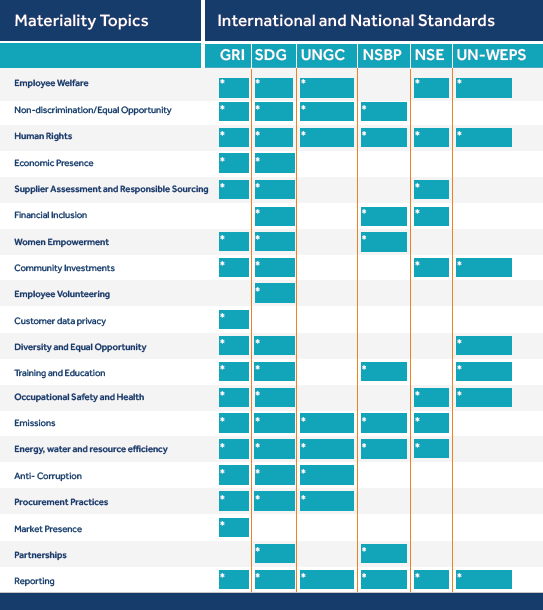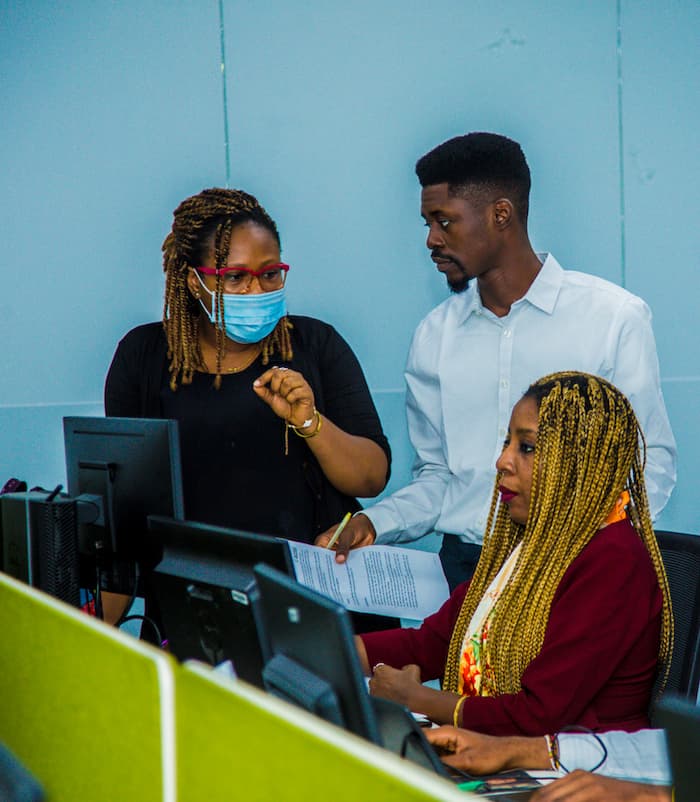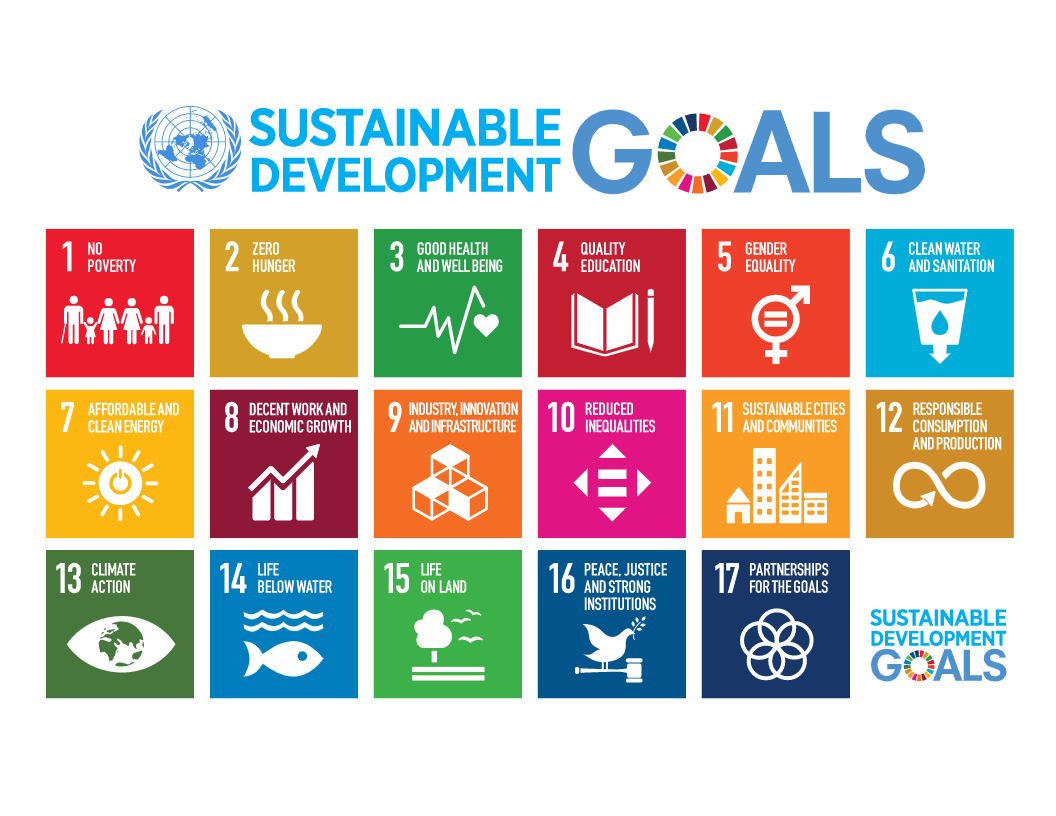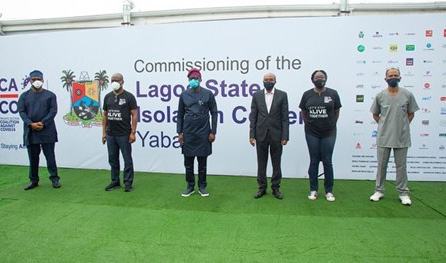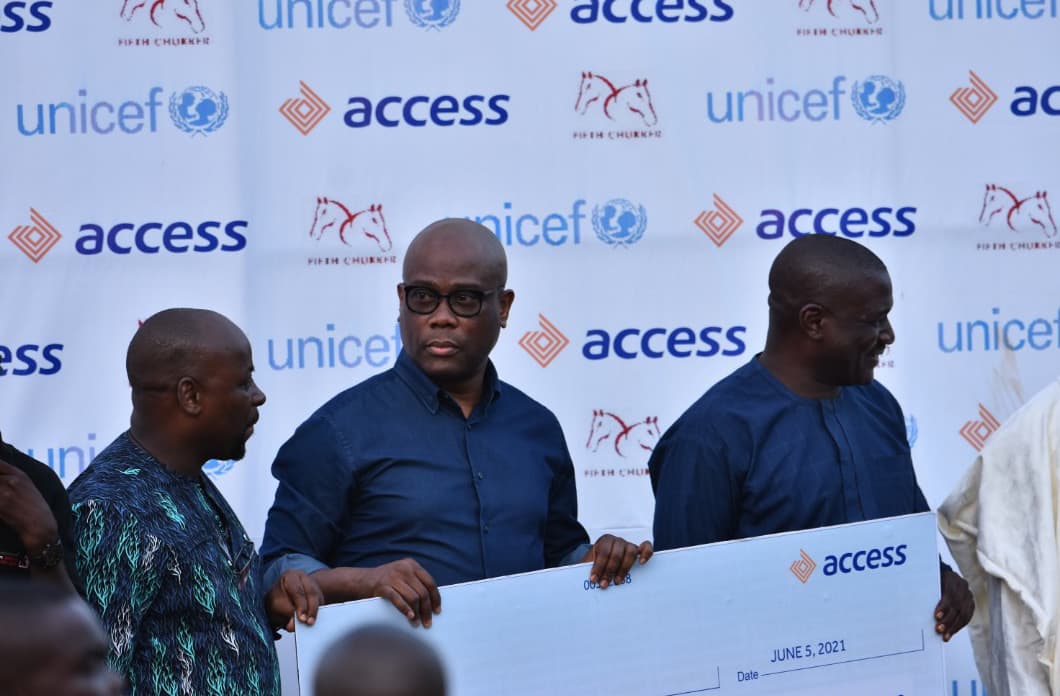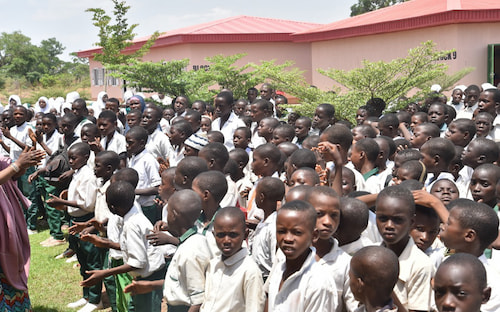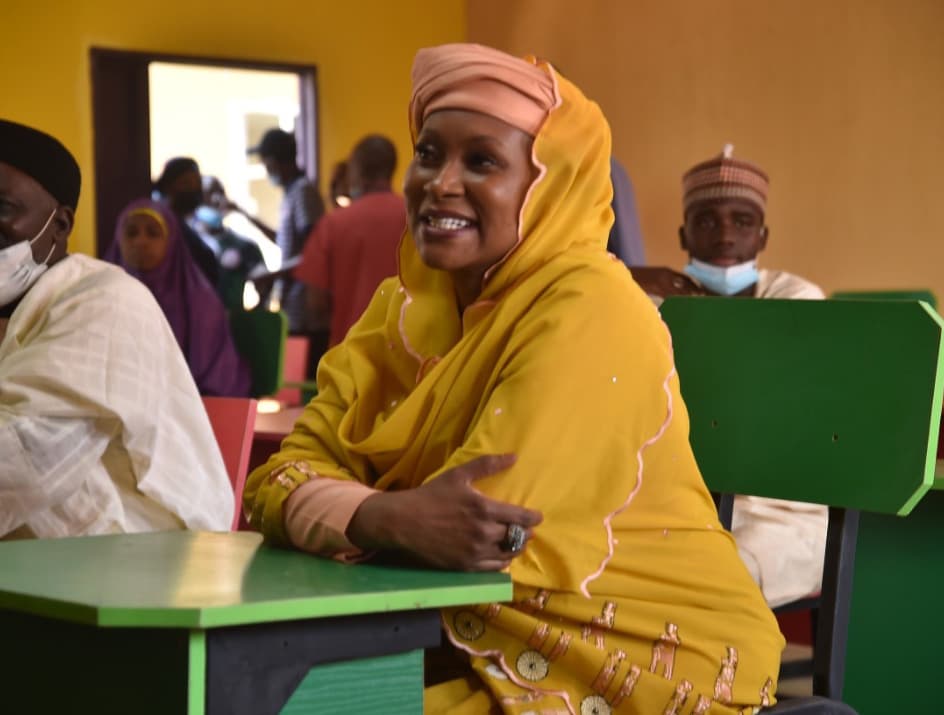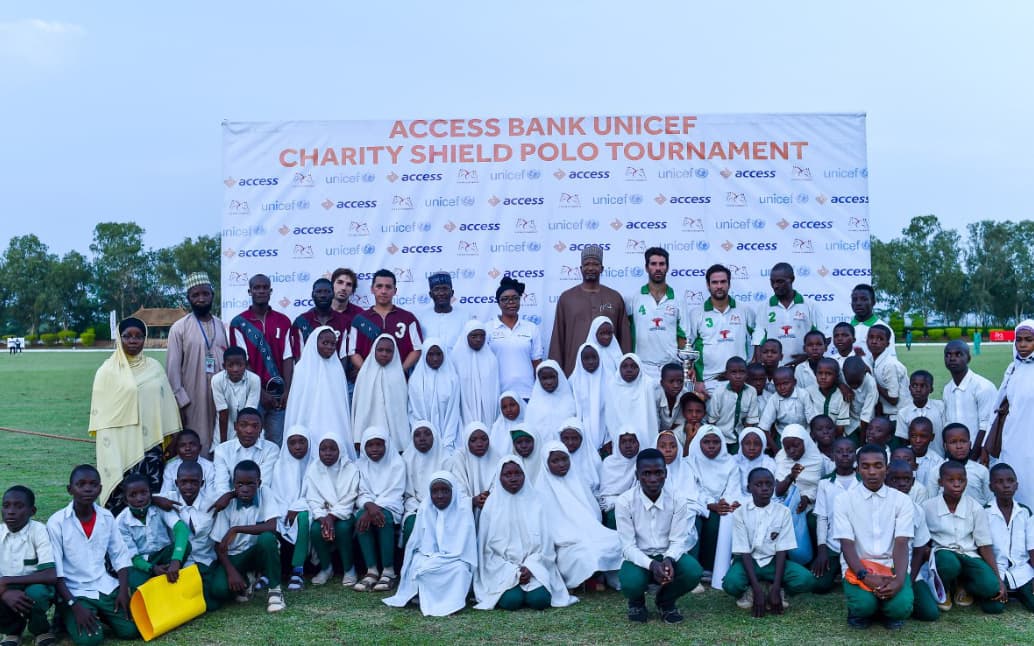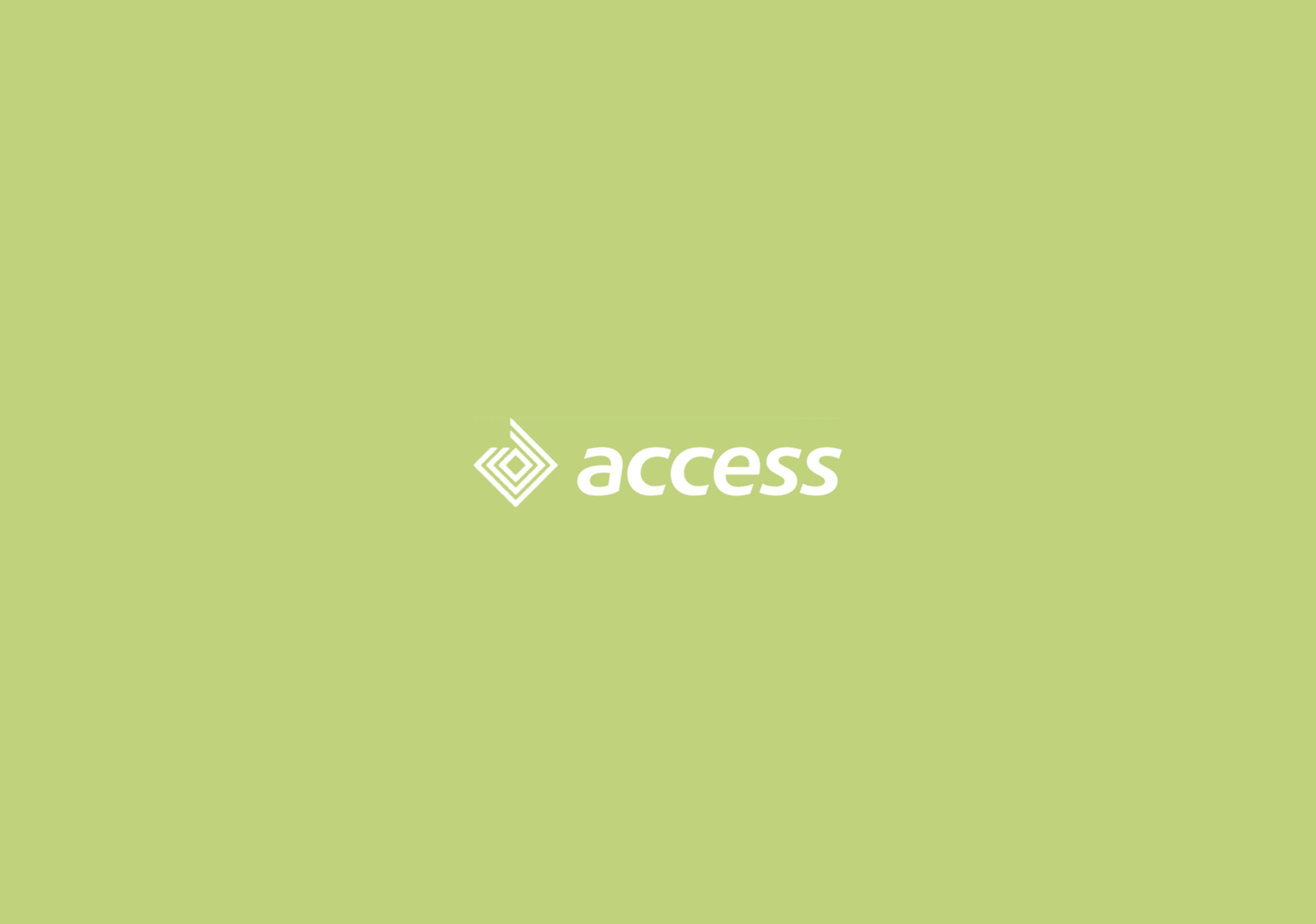Access Bank’s Employees

Our employees are the engines that run our systems. Our workforce not only
share our belief of financing a sustainable world, they are ambassadors for
that mission. Our employees constantly bring the best of their knowledge and
expertise to the organization and we are proud of the work they do across our
organization.
In 2020, we engaged our employees through the “We CLAP: We Care, We
Lead, We Appreciate and We Perform” initiative. We provided learning opportunities
to help employees grow in their various fields. There were also workshops
and roadshows to increase employees’ understanding of the Bank’s
vision and culture. We celebrated employees’ volunteering activities and the
Bank’s numerous successes which we achieved through the work of our employees;
and importantly, we acknowledged special events in their lives.
The COVID-19 pandemic changed how we engaged with each other and
our ways of getting the job done. However, this global challenge did not only
strengthen our workforce, it opened up alternative, innovative and efficient
ways of communication, which going forward, will be embedded into our organizational
structures while achieving our objectives.
Together, all 15,611 of us form one strong body that continues to set the
pace in delivering exceptional service across our various offerings.
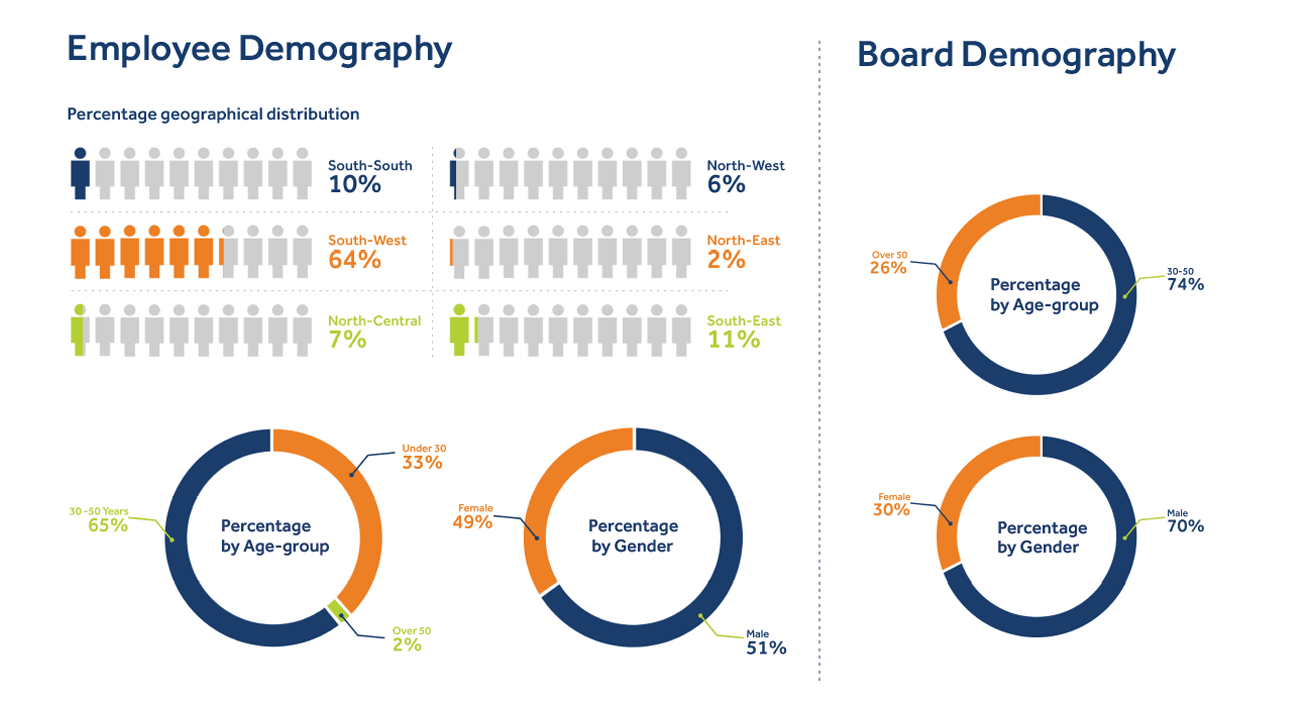
Our current employees filled 35% of open roles while
11% of employees assumed new roles in 2020. 81%
of new hires were at entry-level and were majorly fresh
graduates. The attrition rate was 13% of professional
staff. All employees earn the same amount by employee
category irrespective of gender. All employees,
whether full time or third-party employees of the bank,
undergo training and enjoy all benefits.

Our employees, through the Employee Volunteering
Scheme, contribute ideas, skills and resources to address
social, environmental and economic issues whilst
gaining hands-on experience and fulfilment as positive
role models in society. We have achieved 100%
employee participation in the Access Bank’s Employee
Volunteering initiative, empowering employees to
contribute to the sustainable development of communities.
Some of the most notable initiatives from the
Employee Volunteering Scheme in 2020 are discussed
under the Community Investment section.
Employee Satisfaction
It is our annual practice to conduct an employee satisfaction
survey across our parent company and the
subsidiaries. This survey helps us measure the level
of employee commitment and engagement in 2020.
It also helps us obtain insight from an employee perspective.
The process is anonymous and is managed
by a third party, Ëngaged Metrics Inc. In 2020, there was
an average participation rate of 80%. This is a decrease
from last year’s (2019) rate of 84%. This is due to data
and network challenges since most respondents were
working from home.

The employee satisfaction index remained constant at
3.5, which is below the plan of 4.0. In percentage terms,
there was a slight increase from 71.5% to 73.1%. This
increase in satisfaction is attributable to employees
believing that their jobs contribute to the purpose of
the organization and that their development is encouraged
by someone in the organization. The employee
satisfaction index for the UK, Rwanda and
Gambia subsidiaries increased as employees were
more responsive to the various engagement initiatives.
The organization is bearing in mind that more
developmental programs need to be in place to enhance
employee productivity and fast-track the careers
of key talents.
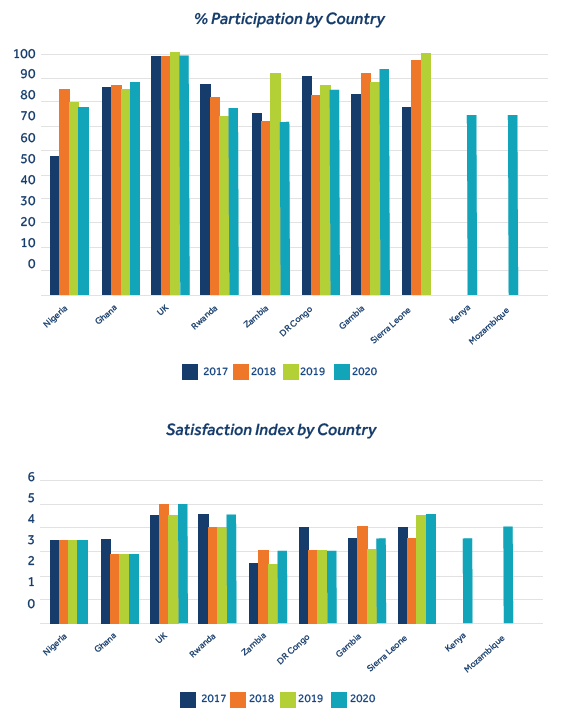
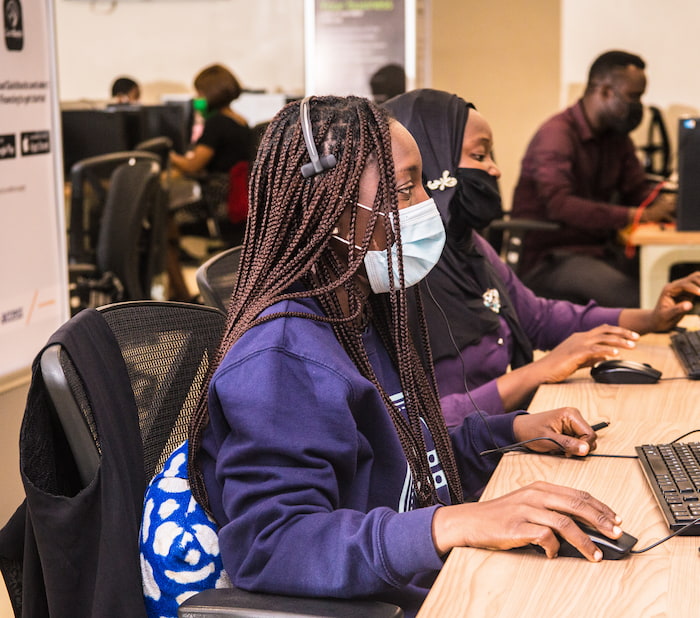
Every year, Access Bank dedicates a week to fostering
sustainability among its employees. The 2020 edition
of the Sustainability Awareness Week held from December
14-18, 2020. The Week was themed ‘Sustainability
as Pathway to a Resilient Future’ and featured
‘edutaining’ events and activities to raise awareness for
employees and even the general public on sustainability
and sustainable practices.
The week consisted of a five-day online educational
session on a variety of topics, and daily sustainability
tips and quizzes. About 767 persons attended the online
training and webinars and 269 people participated
in the virtual Zumba class. As part of the activities to
commemorate the Week, the Bank organized a Sustainability
Chat, themed ‘Understanding Interactions
Between the Sustainable Development Goals,’ featuring
former Minister of Environment and Member of
Parliament of Denmark, Kristen Brosbol and was moderated
by the Project Director, HACEY Health Initiative,
Isaiah Owolabi.

The purpose of the session was aimed at helping to
establish a baseline understanding of important interactions
within the 2030 Agenda and its set of 17 Sustainable
Development Goals (SDGs), and to launch a
discussion on the implications of these interactions for
integrated approaches to implementation of the 2030
Agenda.
Occupational Health and Safety
The health and safety of our employees remain a top
priority for Access Bank. The wellbeing of our people
is the wellbeing of our business. The Health, Safety,
Security and Environment (HSSE) department of the
bank guides our approach and response to all matters
relating to health and safety, both for our employees
and other stakeholders. Through this department, the
health and safety impacts of our products, services and
operations are assessed. In 2020, our Health and Safety
training focused on Fire Safety Management and
Evacuation for the Health Champions and Fire Marshals
in the bank.
Access Bank recognized the COVID-19 pandemic for
the health risk that it was and took vital steps in response
to it. At the onset of the pandemic, even before
the government declared the nationwide lockdown,
our Business Continuity Plan was initiated. Most
branches were closed and most members of staff
worked from home to minimize the risk of exposure.
Contact centres were opened across communities
and most transactions became automated. When the
lockdown was lifted and businesses were allowed to
operate, strict adherence to the COVID-19 protocols
established by the Nigeria Centre for Disease Control
was ensured across all open service outlets. The bank
in partnership with CACOVID concluded arrangements
to vaccinate all staff.
Training and Development

Our employees undergo continuous training and
development programs, which they are fully interested
in. We invest in building up employees’
professional skills and aid their career growth.
We invested over N570.112 million in employee
training and development in 2020. The total
number of hours of training was 624,877,230
(Female employees – 287,443.42 hours; Male
employees – 337,433.58 hours), with the average
hours of training per employee being 40.77
hours. The training covered the following topics:
Leadership; Soft Skills; Risk Management; Digital
and Analytics skills; Health, Safety and Environment;
Sustainability; and functional programs.
This training is available to third-party employees
but not to third party organizations.
All employees receive regular performance review
and career review in 2020. This review is
carried out twice a year. Our employee exchange
programme across our subsidiaries also helps our employees
to learn about different aspects of the organization
and have the opportunity to develop skills and
knowledge across diverse cultures.
Our Customers
Our customers are the reason why our business exists,
and are important to its continued success. We
maintain our customers’ loyalty by focusing on offering
financial products and services that are important
to their growth and livelihood. Across our financial services,
we provide the most reliable and specific solution
to our various customers. We monitor and refine our
customers’ relationship, having a high regard for their
opinion. By working on the feedback we received on
our services, we have gained the trust of our customers
and this has earned us a 20% increase in the past
year.
Through our Customer Loyalty Reward Program, we
provided customers with an opportunity to earn points
from their everyday transaction, which can be used to
purchase household items and movie tickets among
others. We also deliver life-changing experiences for
customers through the “Diamond Xtra” and “Xclusive-
Plus lifestyle” propositions. We give end-of-year gifts
and celebrate our customers on their special days and
on holidays.
Total number of customers: 40.342 million.
Total value of customers’ deposits: N5.8 trillion.
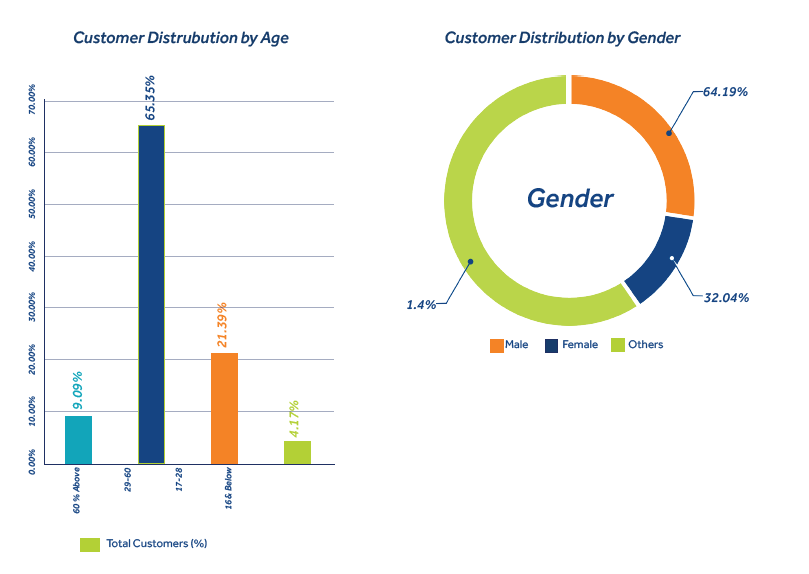
Customer Safety and Data Privacy

The safety of our customers is always top priority
for us at Access Bank. We have measures
in place to ensure the physical safety of all our
customers. Customers that are pregnant, sickly
or above 60 years are attended to promptly. Our
buildings are also designed to facilitate easy access
for physically-challenged customers; there
are designated parking spaces and wheelchair
ramps for customers with disabilities. Necessary
safety measures are considered during the design
of all the bank’s buildings and facilities. We
have first aid boxes on all floors and have signed
on to an hospital ambulance service in some locations
to enable us quick access to medical
help during any emergency.
The safety of customer financial data is very
crucial to the existence of our business. We
continuously improve our security and validation
channels to protect customers’ deposits. More
financial information advocacy was provided to
customers during the pandemic as cyber fraud
became on the rise. Our Access More was enhanced
to block accounts immediately fraud is
suspected in thems. We also protect our customers’
deposits through the following measures:
-
Authentication/authorization of customer before
being able to carry out any activity on customer
accounts.
- Mandate/Signature requirement to identify customer
- BVN verification as required
- Passwords/PIN/Token for Channels Usage
-
Channels available to block account in the
event of fraud/fraud attempt/exposure.
-
Fraud Escalation available 24/7 via various
channels.
-
Audit/periodic review of activities on old and
new accounts.
-
Customers are alerted regarding activities on
their accounts; log in via online channels, deposits,
withdrawals, information update etc.
-
Unrestricted access to authorized persons to
relevant account:
- Provision of account statement to customers
- Realtime Access
-
Policy on privacy and breach of customer information.
-
Restricted access to dormant accounts.
-
Deposit insurance.
Issue Resolution
Access Bank has established platforms and processes for handling customer
complaints to drive customer loyalty, satisfaction, and quality assurance. This follows
from the fact that Access Bank understands that it is not immune to complaints
given that some customers may have challenges with the Bank’s products
and services.
A Customer Relationship Management (CRM) solution was implemented to facilitate
the systematic and orderly management of complaints. The platform allows
customers to make their complaints via various channels and track the resolution
of issues within defined timelines. We have put in place more resources
(human and digital) to help us respond to complaints as fast as possible. In 2020,
we resolved four times more resolutions that we did in 2019. Our resolution time
of one day increased from 15% to 62%.
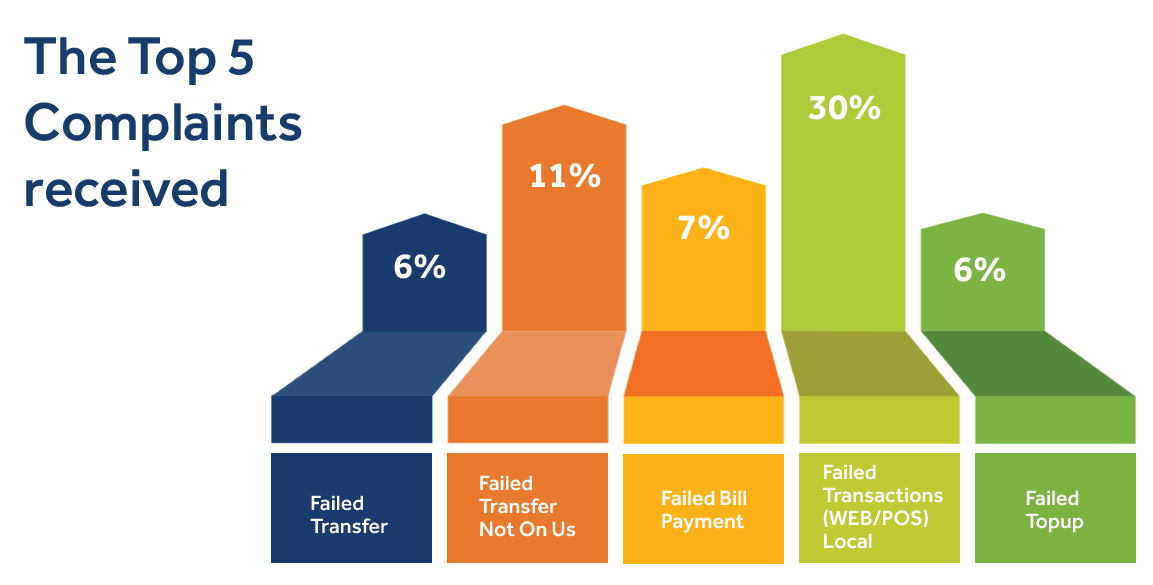
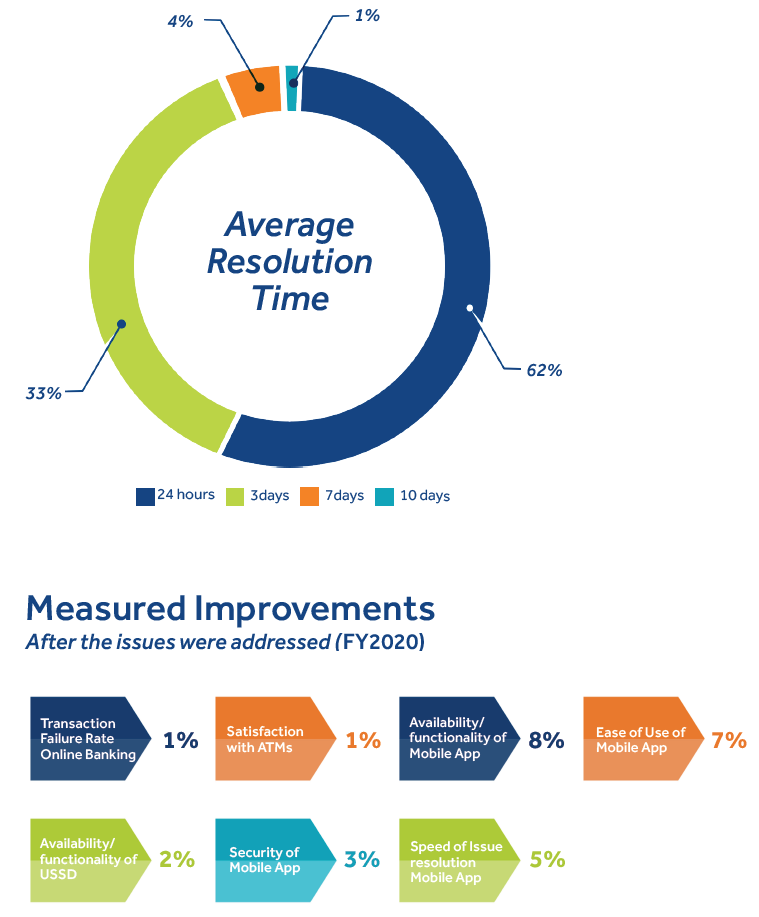
Financial Inclusion
Through our “Access Closa Agent,” we spread the borders of our operations to
the underbanked or unbanked. We branded over 10,000 agent locations across
the country, and in partnership with Google, our “Access Closa Agents” are easily
located by searching on Google Maps. This improved our visibility and expanded
our reach.
The Closa Agent Network has created thousands of jobs both directly and indirectly
across the entire agency banking ecosystem in Nigeria and also greatly improved
the income levels of thousands of local businesses who have partnered
with Access Bank to drive our financial inclusion strategy. Our agents have become
brand ambassadors for the Access Bank brand. The growth and wide acceptance
of our agent network were characterised by the surge in daily transaction
values from N2 million in January 2020 to N5 billion by the end of December
2020, with over 1,600% in revenue growth as revenues moved from N43 million in
January to over N700 million by December 2020.
Access Bank has continued to support the growth, development and prosperity
of the communities and societies where its operations are carried out. We understand
the importance of investing in the development of our communities. Our
community initiatives are aimed at providing support and equipping numerous individuals
to lead healthier and more productive lives. In return, this has helped expand
our market share, built goodwill for our brand, and given us additional motivation
to do more.
Check out our Community Investment Intiatives here.
We support various initiatives, projects, organizations and events that are focused
on impacting the communities that we live and operate in positively. These investment
initiatives are centred on our commitment to empower local communities
and strengthen existing relationships with our partner organizations.
As such, we have invested over N10.25 billion in various corporate social responsibility
efforts since 2015, which has impacted 1,316 communities and reached
30,075,356 lives and 793 NGOs. These projects have been in our CSR priority areas
which are Health, Education, Sport, Arts, Environment, Women Empowerment,
and Social Welfare.
Some of our notable commun ity investment programs in year 2020 are as
follows.
HEALTH
Access Bank Lagos City Marathon 2020 and Free HIV/AIDS Testing
In partnership with the Lagos State Government, Access Bank hosted the 2020
edition of the Access Bank Lagos City Marathon. This event promotes healthy
living by maintaining physical fitness through exercise. The partnership also
involves providing strategic support to the State Government in the area of
sports. The marathon has drawn both local and international attention as the
event has been approved by the Athletics Federation of Nigeria and endorsed
by the International Association of Athletics. The marathon also drew athletes
from across the globe with over 100,000 athletes participating in the annual
event.

This edition of the marathon was themed “More Than A Race” and it held on
February 8th, 2020. David Barmasai Tumo, Debeko Dakamo and Paul Waweru
Chege came first, second and third, respectively, with finishing times of
2h:10m:23s, 2h:10m:55s and 2h:11m:23s, respectively, thereby breaking the
records set in 2018 by Abraham Kiprotich. The female category had Cherop
Sharon Jemutai, Kebene Chala Urisa and Rodah Jepkorir Tanui taking the
first, second and third positions, respectively, with Cherop finishing the race in
2h:31m:40s. The winners in both the male and female categories of the 42km
race went home with $50,000, $40,000 and $30,000 for the first, second and
third positions, respectively.
In addition to hosting the 2020 Lagos City Marathon, Access Bank leveraged
the marathon platform to create awareness around HIV prevention, by providing
counselling and testing exercises for athletes at the marathon. Access Bank
partnered with the Nigerian Business Coalition Against HIV/AIDS (NiBUCCA) to
provide HIV testing and counselling services during the marathon kit collection
period at Teslim Balogun Stadium and on the race day at Eko Atlantic City. HACEY
Health Initiative, a non-governmental organization that is focused on implementing
health programmes across Nigeria, also supported the efforts.

Counselling and testing were carried out by experienced and trained counsellors
and testers, using standard procedures and kits, and maintaining result confidentiality.
Positive HIV cases were referred to health facilities for management. A total
of 3,235 people were counselled and tested, with 11 HIV reactive cases discovered,
which have since conducted further tests and commenced treatment.
Also, 10,000 condoms were distributed.
A total of 249 new cases of mother-to-child transmission of HIV were prevented
as a result of the awareness programme of the campaign. A video documentary
on key activities of the testing programme was produced for advocacy and promotion
after the programme. The HIV video documentary on the screening had
over 10,000 views as of mid-2020.
Access Bank also partnered with The END Fund, a private philanthropic initiative
solely dedicated to ending the five most common neglected tropical diseases
(NTDs), at the 2020 Lagos City Marathon to raise awareness on the NTDs. Over
2,118 participants at the marathon were also educated directly on parasitic infections,
including River Blindness, Lymphatic Filariasis (Elephantiasis), Trachoma, Intestinal
worms and Schistosomiasis (Snail Fever).
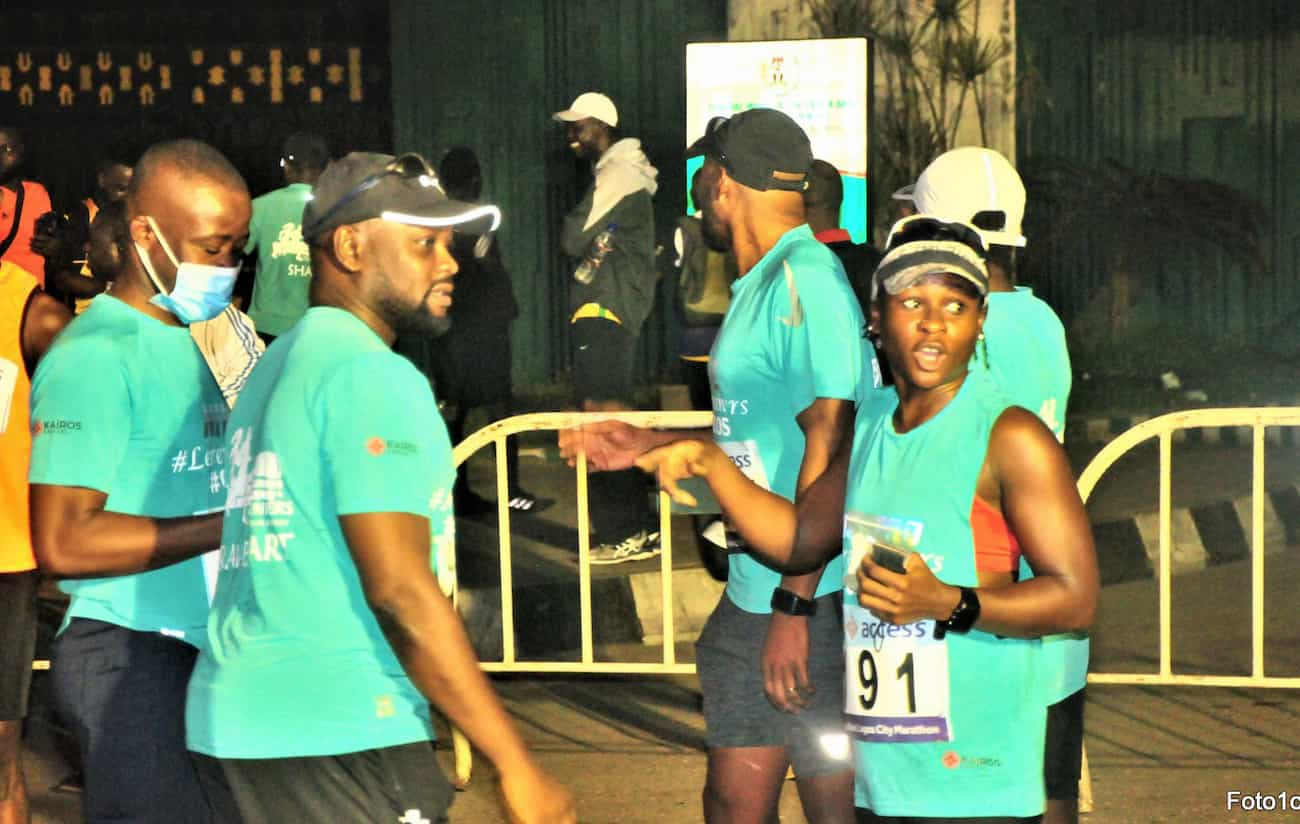
World Kidney Day Program
Kidney disease is a non-communicable disease and currently affects around
850 million people worldwide. The global burden of kidney disease is increasing
and is projected to become the 5th most common cause of years of life lost
globally by 2040, as one in 10 adults has chronic kidney disease. World Kidney
Day continues to raise awareness of the increasing burden of kidney diseases
worldwide, and to strive for kidney health for everyone, everywhere.
The Theme of 2020 World Kidney Day was “Kidney Health for Everyone Everywhere.”
The aim was to highlight the importance of preventive interventions to
avert the onset and progression of kidney disease.
The World Kidney Day was commemorated by Access Bank in partnership with
Kidney Foundation for Africa (KFA). The Bank hosted the “Chronic Kidney Disease:
Stop the Epidemic in Africa” program on March 12, 2020, at the Eko Hotel
& Suites and a Kidney walk on March 13, 2020. Key stakeholders including
The First Lady of Lagos State, Ibironke Sanwo-Olu; Chairman, Access Bank Plc,
Ajoritsedere Awosika; Professor Mohammed M. Nars Allah, Professor & Consultant
of Internal Medicine & Nephrology, Cairo University (North Africa); Dr. Esther
Getambu, Consultant Physician/Nephrologist (East Africa); Professor Alain
G. Assounga, Head, Nephrology Unit, Nelson Mandela Medical School (South
Africa), and Dr. Ebun Bamgboye, Consultant Physician/Nephrologist (West Africa),
were all present at the program.
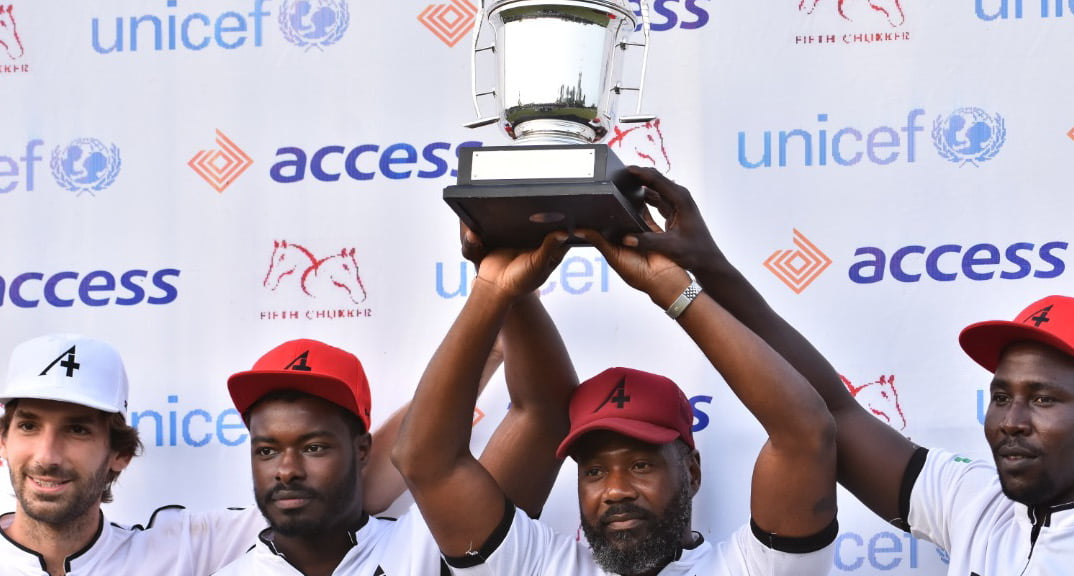
The conference and the walk were aimed at raising conversations in Nigeria and
encouraging early prevention of the disease. Information on screening of all patients
with diabetes and hypertension to detect kidney disease was advised for
all medical professionals and health facilities in Nigeria. 180 participants were educated
with information on kidney disease prevention and treatment measures.
Over 195 people participated in the Kidney walk to raise awareness on the importance
of the kidney to the body and reduction of its associated problem worldwide.
The Lagos State ably represented by the First Lady, Ibironke Sanwo-Olu, committed
to intensifying awareness among Lagos residents on the devastating effect
of kidney disease. The conference also catalyzed the acceleration of kidney disease
prevention, treatment and awareness under the THEMES Agenda (a policy
thrust for Traffic Management and Transportation, Health and Environment, Education
and Technology, Making Lagos a 21st Century Economy, Entertainment
and Tourism, and Security and Governance) of the Lagos State Government.
Project Agbebi – Maternal and Child Health Program
Project Agbebi was created as a response to the high incidence of maternal and
child mortalities in South-East Nigeria. High maternal mortality rates and newborn
deaths have remained a major public health concern in Nigeria. The country
accounts for 20% of global maternal deaths with a maternal mortality ratio
of 8 deaths per 1,000 live births, which happens to be one of the highest in the
world.
Access Bank partnered with HACEY Health Initiative to implement the maternal
and child health programme in Ebonyi State. The programme consisted of
capacity building sessions for healthcare providers and birth attendants, stakeholder
engagement and distribution of sterilized birthing kits.
Primary health care providers and birth attendants were trained to provide better
service delivery, practice proper hygiene, prevent infection during pregnancy
and delivery, and carry out follow-ups for pregnant women and newborns. Information,
communication and education tools such as videos, radio messages,
fliers and posters were created to disseminate life-saving information for
safeguarding the lives of pregnant women. Birthing kits were distributed to the
participants and pick-up points for the birthing kits were established within the
communities to guarantee access for women and healthcare providers.
Lastly, there were dialogue sessions between primary healthcare providers and
community birth attendants to ease the referral process between them. The
community leaders and other members were also engaged and enlightened.
Malaria Awareness Program
As the burden of malaria continues to plague the Nigerian nation, with a high
prevalence in children under age five, Access Bank continues to lend its support
to communities and to the nation at large to end malaria in Nigeria. To commemorate
the 2020 World Malaria Day, Access Bank partnered with the Corporate Alliance
on Malaria in Africa to deliver malaria prevention, control and treatment program
amidst COVID-19 in five communities across Oyo, Lagos and Ogun states,
namely Ogo-Oluwa, Eredo, and Iberekodo in Lagos State; Aremo and Oke-Ado in
Oyo State; and Ibafo in Ogun State.
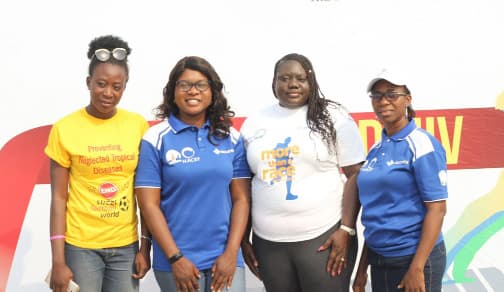
Long-lasting insecticide-treated nets (LLINs) were distributed to members of
these communities. They were also provided information, communication and
education materials. This initiative had over 200,000 IEC beneficiaries and 1,600
LLINS were distributed.
Nigeria has a high burden of tuberculosis and is ranked seventh among the 30
high TB burden in the world and second in Africa. To reduce the prevalence of tuberculosis
and eradicate the stigmatization and ignorance associated with tuberculosis,
Access Bank in partnership with Nirvana Initiative implemented a TB program
in Local Government Areas (LGAs) across Anambra State. In Muru Village,
200 people were sensitized to TB prevention and 100 sputum cups were distributed.
Community.
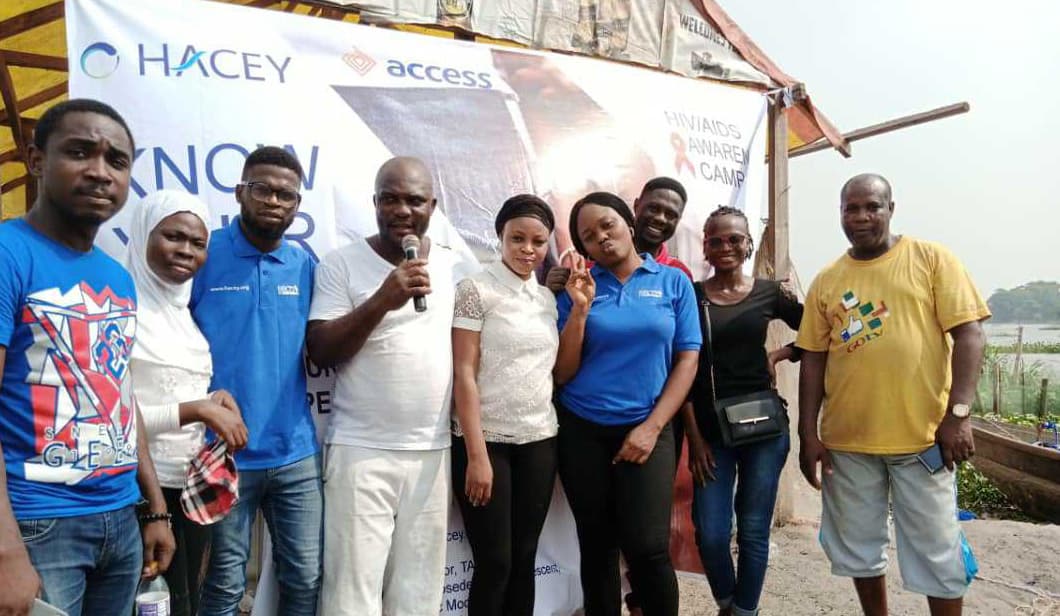
In Awada, Idemili North LGA, tuberculosis information and education sensitization
which reached a population of 10,320 residents (860 children and covereing
14 settlements/zones) was carried out. Thirty-three persons sensitized to TB,
seven sputum cups shared, seven sputum sample collected and one person sent
for a chest X-ray in a primary healthcare centre in Awada. Twenty-three women
of childbearing age were educated on TB, 10 sputum cup shared, one person
sent for chest X-ray at Basic PHC, Court Road.
TB education town announcement, sensitization and market outreach were conducted
at Ogbeumonicha, Onitsha North LGA (covering seven settlements, with
a total population of 41,852). Media awareness on TB prevention, control and
treatment was done at Anambra Broadcasting Service (ABS) Awka, and 52,728
people were reached.
World AIDS Day
Access Bank sits on the Board as co-Chair of the Nigerian Business Coalition
Against AIDS (NiBUCAA). NiBUCAA is the voice of the private sector response to
HIV/AIDS in Nigeria. The organization was set up to position the private sector in
capitalizing on their unique strengths and proficiencies in HIV program areas and
mitigate the impact of viral infection in the workplace and society in general. The
Bank partnered with NiBUCAA to commemorate World AIDS Day across several
communities in Nigeria.
Messages on HIV prevention, HIV counselling, testing and referrals were provided
to communities in Lagos State (Badiya, Epe, Ijora, Ikorodu), Ondo State (Ondo
town), and in the Federal Capital Territory (Mabushi community). 20,000 information,
education and communication materials on HIV and 15,000 condoms were
distributed across these communities. 3,164 people were tested for HIV and
there were 44 HIV positive cases.
EDUCATION
Scholarship for Special Needs Students
Access Bank promotes inclusive, equitable, quality education and promotes
lifelong learning opportunities for all. Access Bank partnered with the Centre
for Youth Studies to award scholarships to special needs students of King’s and
Queen’s College undergoing the CYS Life Skills training program. The Centre
for Youth Studies (CYS) is a non-governmental organization that employs creative
media to disseminate information. The organization primarily uses drama,
in print, audio and audio-visual media to disseminate empirically verifiable
information on the lifestyles and patterns of behaviour among young people in
Nigeria. The Life Skills training program includes character development classes
and re-orientation training, communication improvement classes and overcoming
inferiority complex training for special needs students.
Soil Conservation Education for Sustainable Farming
The rising impact of climate change on food security makes farmers to struggle
with new environmental challenges. This creates a need to promote awareness
of sustainability in agriculture and farming practices to ensure food security. To
achieve this, Access Bank partnered with Glow Initiative to implement the Soil
Conservation Education Program for Sustainable Farming (SCEP-SF). Glow Initiative
is a non-governmental organization focused on environmental and economic
empowerment programs.
The program, which took place in Enugu State, featured an environmental sustainability
awareness tour, a “Young Farmers Connect”, which is an environmental
sustainability in farming training program and a tree planting for sustainability
exercise, to commemorate the World Day for Soil Conservation. Soil Conservation
information, education and communication materials were distributed to
over 800 students, farmers and farmers’ associations.
Digital Learning Content for Mass Literacy Programs
Access Bank partnered with CARE Initiative to birth the project tagged “Development
of Digital Learning Contents for Mass Literacy Programs in Ogun State.”
CARE (Childhood Advancement Response and Empowerment) Initiative is a
non-governmental organization working to promote and protect the rights and
welfare of every child including street children. The project is in response to the
need to introduce digital teaching and learning into mass literacy programs in Nigeria.
There was a train-the-trainer session on digital skills for literacy educators. Participants
were drawn from literacy centres operated by government agencies,
community associations, faith-based organizations and non-governmental organizations.
There was also a stakeholder engagement with the Ogun State
Agency for Mass Education on the adoption of digital learning tools into the
school curriculum.
Education Without Abuse (EWA) Program
Access Bank, again, partnered with CARE Initiative to birth the Education Without
Abuse (EWA) program. The program focused on putting in place a stronger
structure for keeping children safe in schools. 600 participants had increased
knowledge of child rights, personal responsibilities, and the role of teachers as
duty bearers in upholding the rights of every child in schools. Thirty participating
schools committed to instituting “Child Rights Protection.”
ENTREPRENEURSHIP
Green Social Entrepreneurship Program

Access Bank continues to drive social change, especially through women and
youth. The Bank partnered with SME Funds to develop the Green Social Entrepreneurship
Program (GSEP), intending to empower women and youth to become
‘Social Entrepreneurs’ whilst driving the use of innovative green cooking
technology in Lagos and Ogun states. Towards achieving this goal, a capacity
building program on Digital Marketing, Lead Generation and Sales for social entrepreneurs
was held. Green hubs were also created as well as tactics for making
the delivery of the energy finance program better.
The program focused on empowering entrepreneurs with clean cooking stove
technology aimed at replacing existing cooking technologies that are harmful
to health and the environment. The Clean Stove technology makes it economically
feasible to convert waste-based biomass to biofuel. The technology
makes use of bio gels. The bio gels are made from water hyacinth, biocremol,
custic soda, fragrance, and chlorophyll. The Green Social Entrepreneurship program
aligns with the following Sustainable Development Goals: SDGs 1, 2, 5, 7
and 13.
Specifically, 238 social entrepreneurs were empowered with funds and have
commenced their clean stove technology business. 2,100 people have been
reached with the use of clean stove technology. 7,500 litres of bio-gel produced
and distributed. 598 households now make use of the clean stove technologies
across Nigeria. 287 metric tonnes of CO2 emission was prevented as a result of
the use of the clean stove technology.
Agribusiness Livelihood Improvement Program
Access Bank partnered with Xploit Consult to implement agribusiness livelihoods
improvement programs. This program was to strengthen food security in benefitting
communities and alleviate poverty. Xploits Consulting Limited (XCL) is
an Environmental and Social management organization focused on sustainable
projects that enhance the socio-economic state of individuals but also benefit
the environment in the interim and long-term. Under the program, 56 people in
communities in Kogi and Nassarawa states were trained on snail rearing and fish
farming, while 224 community people were impacted with agribusiness skills.
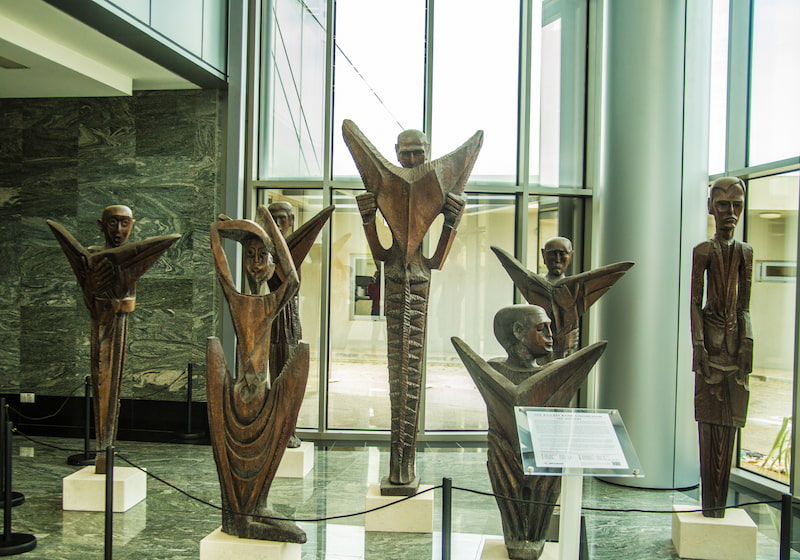
EMPOWERMENT
World Wild Life Champions
Local communities have habitats that are home to important wildlife species.
However, the people of the communities may not know this and proceed to kill
wildlife once sighted. To build knowledge, positive attitude and practices towards
wildlife conservation amongst local community dwellers, and also to institute
conservation clubs in schools to sensitize youths and advocate actions
for effective wildlife conservation, Access Bank partnered with Glow Initiative
for Economic Empowerment to implement the Save Wild Life program in Enugu
State.
The program was held across four communities in Enugu State, which include
Orieani Amechi, Udeji Amechi, Enugu Ngwo and Garriki Awkunanaw. A Save
Wild Life in Enugu policy brief was developed and presented to government
stakeholders: Commissioner for Agriculture and National Resources, Enugu
State. 250 hunters and farmers were educated on “Making Conservation a
Habit’’ at Ngwo Community. 280 community secondary school students were
educated on “Save Wild Life’’ in Enugu and Conservation clubs were instituted
in schools across four communities. There was also a strategic discussion
held with the Ministry of Environment to promote a wildlife protection law. Over
2,000 people were impacted by the Save Wildlife Program.
#FollowDisACT Campaign
The International Day of Persons Living with Disabilities (PLWDs) is observed to
promote the full and equal participation of persons with disabilities to take action
for the inclusion of PWDs in all aspect of development. Access Bank partnered
with Project Enable to commemorate the 2020 PLWD Day, themed “Building
Back Better: Towards a disability-inclusive, accessible and sustainable post-
COVID-19 world.”

The program was to showcase the ideas, businesses and productivity of the disability
community in Nigeria towards amplifying their voices and strengthening
the institutional capacity of the community. Part of the event was a business
pitch competition for PLWDS to showcase and support the business ideas of
young entrepreneurs; the launch of Business Support Program faculty chaired by
Head Sustainability, Access Bank, Omobolanle Victor-Laniyan and the General
Manager of the Lagos States Office for Disability Affairs, Mr. Dare Dairo; and the
unveiling of most inspiring persons with disabilities list and documentary series as
part of the #FollowDisACT Campaign.
Covid-19 Response
The COVID-19 pandemic affected the health, economic
and social wellbeing of the world with communities
in developing nations and vulnerable groups
taking the worst hit. To show our commitment to society,
especially in communities where we carry out
our operations, we supported vulnerable and underserved
groups to help alleviate the impacts of the
pandemic.
In Nigeria and across the world, governments are
implementing strategic measures to reduce and
mitigate the risk and spread of COVID-19, one of
which is the stay-at-home practice, which resulted
in the closure of schools, offices and trading centres
amongst others.
Succour For People Living With Sickle Cell
In partnership with Temitayo Help Foundation and
Nirvana Initiative, both non-governmental organizations,
Access Bank reached out to people living with
Sickle Cell Anaemia and vulnerable families in the society
amid the COVID-19 pandemic. Food items and
relief materials were distributed to people living with
sickle cell disease. There were also sensitization sessions
on COVID-19 prevention, maintaining good
health, and physical and mental wellbeing, amidst the
pandemic. In total, 2,000 people, inclusive of vulnerable
families, were reached with COVID-19 food palliatives.
The 2020 World Health Day (WHD) was focused on
celebrating healthcare workers especially nurses and
midwives across the globe for the precarious role
they play in ensuring the safety of newborns and the
world at large. Around the world, people spent the
day thanking the nurses and healthcare workers on
the frontlines battling the COVID-19 pandemic.
At Access Bank, in recognition of the contributions
of community birth attendants and healthcare providers
in semi-urban and rural communities towards
managing the coronavirus pandemic, we partnered
with HACEY Health Initiative, an NGO focused on
maternal and child health as well as other health-related
programs, to commemorate the 2020 WHD
across four communities in Lagos and Ogun States.
5,000 information, education and communication
(IEC) materials were distributed to community birth
attendants, pregnant women, and women with under-
5 children. The initiative had 500 beneficiaries of
hygiene materials and 500 beneficiaries of food palliatives.
Persons Living with Disabilities (PLWDs)
Persons living with disabilities are a major vulnerable
group adversely affected by the COVID-19 pandemic.
These individuals generally require more healthcare
than other people and will be greatly affected
by the socioeconomic impacts of the pandemic. Access
Bank, to reduce the economic burden of the
COVID-19 outbreak on PLWDs, partnered with Estrategico,
an organization focused on creating means of
livelihood for vulnerable groups, to deliver a COVID-19
Campaign program for PLWDs. Food palliatives, hygiene
products and IEC materials were distributed
among the PLWDs community.
Relief Program for Correctional Centers
Access Bank partnered with the Centre For Youth
Studies (CYS) and Nigeria Association of Social Workers,
Lagos Chapter to deliver a COVID-19 program
geared towards the development and sustenance
of young boys and girls in correctional centres in Lagos.
The program was held at the Special Correctional
Centre for Boys, Oregun, Lagos and Special Correctional
Centre for Girls, Idi-Araba, Lagos. A life skills
training program was designed to equip the young
boys and girls with skills that build character and to
help them maintain healthy mental wellbeing.
Food palliatives, exercise books and CYS life skills
books were distributed to 196 beneficiaries in the
Special Correctional Centre for Boys and 70 beneficiaries
for the Special Correctional Centre for Girls. Boys
and girls were sensitized on the subjects ‘Love Your
Self’ and on the ‘Role of a Social Worker’ in the rehabilitation
of students in the correctional facilities.
Street Children and Children In Orphanages
Access Bank partnered with Care Initiative to birth
the “School in the Street” COVID-19 response program.
The program was implemented across Lagos
and Ogun states and was to provide additional support
for street children and children in orphanages to
keep them safe amidst the coronavirus pandemic. For
two weeks, one meal a day and hygiene materials were
provided for 700 street children. Raw food items and
hygiene materials were also provided for 300 children
in orphanages.
Relief Program For Elderly And Widows
Amidst the COVID-19 pandemic, Access Bank partnered
with PDI to organize a relief drive for elderly
people and vulnerable widows. Raw food items, hygiene
products and IEC materials were distributed to
500 widows and elderlies to help improve their living
and mental conditions.
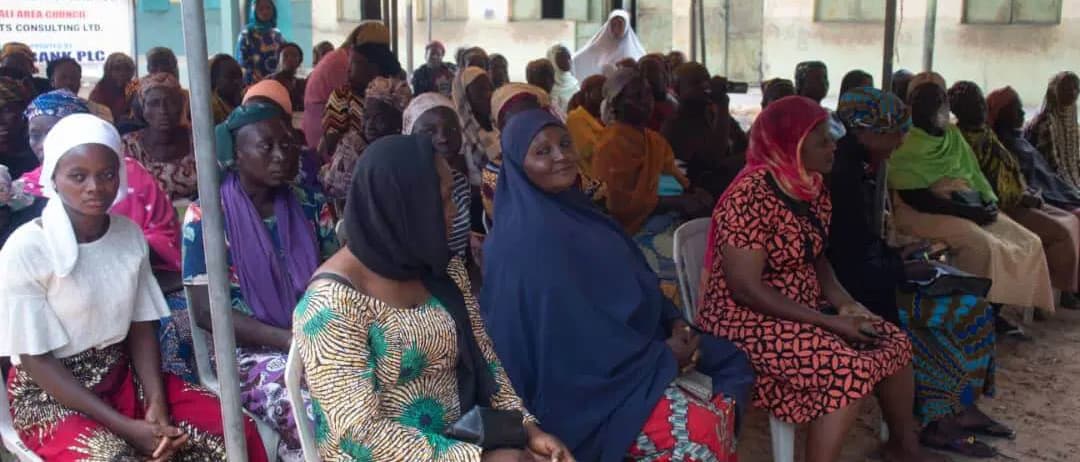
Response For Rural Women
Access Bank partnered with Glow Initiative to organize
the Rural Women Coronavirus Awareness Initiative.
The initiative focused on raising awareness
on coronavirus amongst rural women in Awkunanaw
rural village, Enugu State. COVID-19 ICE materials in
the Igbo language were distributed to 500 women.
Relief food palliative and face masks were distributed
to 100 women.
Access Bank in collaboration with Xploit Consult implemented
programs aimed at driving positive
change in the lives of vulnerable groups, which include
widows, orphans, internally displaced persons (IDPs),
elderlies and People Living With Disabilities, amidst
COVID-19 lockdown restrictions in communities across
Abuja.
The program was implemented across five communities
which include Dawaki, Dutse Alhaji, Dutse Makaranta,
Dutse Bakuma, and Byazhin. 500 packs of food palliatives
were distributed across five communities in Abuja
(100 food packs each for widows, orphans, IDPs, elderlies
and the disabled in each of the five communities)
and 1,000 face masks were also distributed in the communities.
Access-9ija Kids
The stay-at-home order by various governments
across the world including Nigeria was a strategic
measure to reduce the spread of the coronavirus.
However, this meant the closure of schools, offices
and other commercial centres. School closure left
children at home with few educational activities to do.
To keep children at home engaged and educated, Access
Bank partnered with 9iJa Kids to deliver online financial
literacy and educational gamification modules
to children.
The program delivered six gamified educational learning
modules which were hosted on the Access Bank
website over aperiod of 12 weeks. The modules included
“Kiddiepreneur 101”, “Solve that Problem”,
“Who wants to be a Brainiac”, “Nigerian Facts”, “Timmy
in Charge” and “9ija Citizenship Test”. The top five
players on the leaderboard stood a chance to win exciting
prizes and the winners were announced three
times a week on the Bank’s social media platforms.
Prizes were redeemed through the Access Bank Early
Savers account, further encouraging an early savings
culture among children.
The program engaged over 1,700 children, and more
than 150 children won prizes via the Access Bank Early
Savers account. These children were also recognized
on the Access Bank social media platform.
The program impacted over 100,000 Nigerian children
and parents with financial literacy education and
had become a worthy example to emulate by other
organizations in Nigeria.
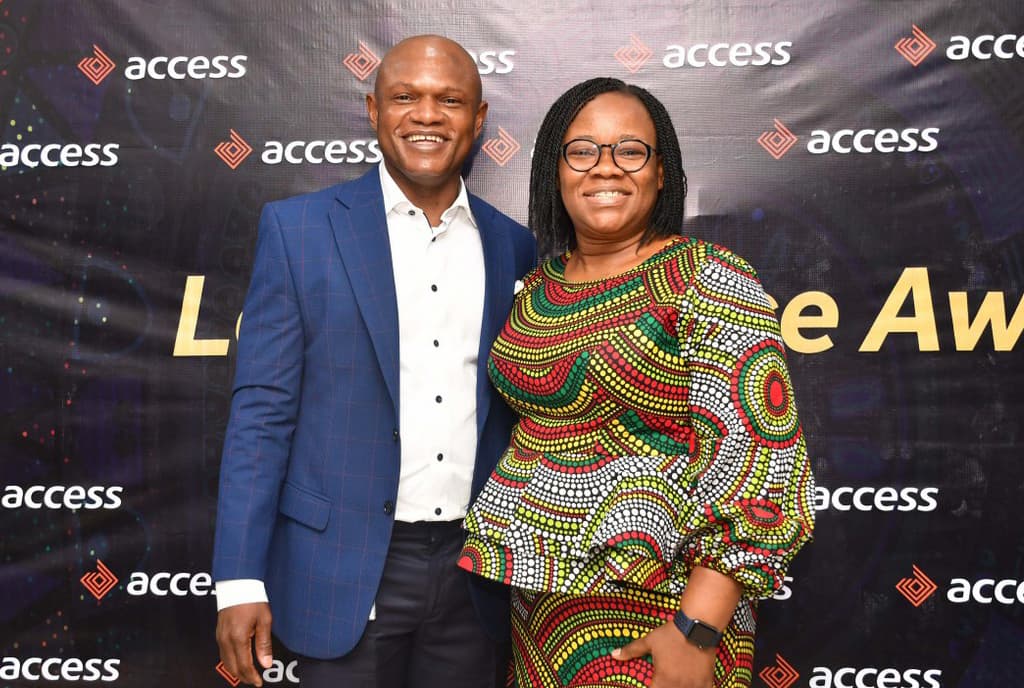
Family Clean Cooking Program for Underprivileged Households
Access Bank partnered with SME Funds, a social enterprise
focused on ending poverty through the
promotion of sustainable enterprise development,
to develop the Family Clean Cooking Support Program
for underprivileged households across Nigeria
amidst the COVID-19 pandemic. Over 2,000 families
were reached across Nigeria with clean stoves and
bio-gels. 225,000 minutes of productive time, 625
gallons of water and 30 days savings of N1,300/ $3
was saved for families.
Act Foundation Grantee Program
Access Bank has been in partnership with the Aspire
Coronation Trust (ACT) Foundation to accelerate
impact in the focus areas of environment,
health, entrepreneurship and leadership, since 2017.
In the reporting period, projects were implemented
across 27 states in Nigeria and three
countries in Africa. 17 non-governmental organizations
received grants in the areas of environment,
health, entrepreneurship and leadership. The targeted
number of beneficiaries impacted was about
304,760 lives.
Since the inception of this partnership with the
Foundation, about 990,265 individuals have been
impacted both directly and indirectly.
The ACT Foundation also supported the Private
Sector Coalition Against COVID-19 (CACOVID) and
made strategic plans for the grant received from
Novartis Nigeria for the implementation of ACT
Foundation’s quota in fighting the coronavirus pandemic.

The EndSARS is a decentralised social movement
against police brutality in Nigeria. The slogan
calls for an end to the Special Anti-Robbery Squad
(SARS), a notorious unit of the Nigeria Police Force
with a long record of abuses. In 2017, protests
started as a campaign on Twitter – with hashtag
#EndSARS – demanding that the Nigerian government
disbands the police unit. The movement
experienced a revitalization in October 2020, with
mass demonstrations across major cities in Nigeria.
Within a few days of renewed protests, the Nigeria
Police Force announced it was dissolving SARS on
Sunday, 11 October 2020, a move that was widely
received as a triumph of the protests.
However, the hijacking of the protest led to the loss
of lives, and destruction of properties and facilities.
Access Bank, as a responsible corporate citizen,
initiated the All4One Project. The focus of
the All4One project is to help local communities
to bounce back from the negative impact of the
protest. In addition, the All4One project is aimed
at impacting lives and businesses positively, rebuilding
communities and reviving communal spirit
amongst Nigerians.
The All4One project provided grants for individuals
and microbusinesses that have been impacted
negatively by the EndSARS protest. The grant program
has a two-pronged focus: individuals (indigents
individuals, students, unemployed individuals)
and microbusinesses (market women, caterers,
photographers, barbers, hairdressers and artisans). In
2020, 51 businesses were impacted with grants under
the All4One community grants.
Employee Volunteering Activities in Communities
Employee volunteering is an innovative way for organizations
to get their employees to be actively involved
in their contribution to the communities within
which they operate. Over the years, Access Bank has
encouraged its employees to carry out various activities
under its Employee Volunteering Scheme, where
employees are provided with guidance and advice on
the best avenues through which communities can be
impacted in various focus areas. Through this initiative,
Access Bank’s employees have contributed ideas,
skills and resources to address social, environmental
and economic issues, while being positive role models
to the people they engage in the communities.

2020 was no different as all our employees across
different units of the bank carried out 514 strategic
community initiatives across all the six geo-political
zones of Nigeria while volunteering a total of
2,781,443 hours since 2015. This further expressed
their passion and commitment to community investment
as reflected in their choice of projects carried
out. Some of the notable initiatives from the 2020
Employee Volunteering Scheme are discussed below.
Conduct and Compliance
The Conduct & Compliance Group committed
2,500 hours and worked closely with Lagos State
Government agencies, including the Lagos State
Ministry of Education (Education Quality Assurance
Department, and Lagos State Universal Basic
Education Board (SUBEB)), and the Lagos State
Materials Testing Laboratory, to carry out a holistic
renovation of St. Peter Nursery/Primary School,
Ebute-Metta, Lagos State.
The group renovated the school buildings and enhanced
the infrastructure of the school, including
the complete transformation of old chalkboards to
marker boards. This project helped to support the
provision of quality education to about 500 otherwise
displaced pupils and a conducive working environment
for their teachers and non-teaching staff.
Internal Audit
The Internal Audit Group committed 2,118 hours
towards improving the learning environment for
students in Akodu Primary School Mushin, Lagos.
This was carried out by working closely with
the Community Chief and Chairman of the Mushin
Community Development Association and the
State Universal Basic Education Board (SUBEB). The
Group carried out a holistic renovation of classroom
blocks in the school, including the roofing of
three classrooms. This project had a direct benefit
for over 500 people by providing a conducive learning
environment and enhancing the academic performance
of the children.

The Information & Cyber Security Group committed
794 hours towards the ‘Kit A Child Initiative’, a
project focused on providing teaching and learning
materials, supporting quality education, and building
literacy skills of pupils. The project also enables
pupils to develop their cognitive, social and creative
skills, while building the capacity of teachers and
caregivers and ensuring that pupils have a fulfilling
and enjoyable experience while getting educated.
This project was carried out at All Saints Primary
School, Lagos and the Group partnered with Rhealyz
Africa to distribute health and safety materials,
learning materials and stationery, school bags and
other supplies to over 150 pupils in the school.
Human Resources & Executive Office
The Human Resources Group and the Executive
Office committed over 1,821 hours to cater to the
education of underprivileged children. This project
benefitted over 800 children across Nigeria and
was carried out in partnership with Bethesda Child
Support Agency, and it focused on the mentoring of
children, provision of educational materials and scholarships
for underprivileged children, as well as the provision
of feeding (1 meal per child, per day) and other
essentials.
Global Transaction Banking
The Global Transaction Banking Group committed
over 250 hours to the installation of renewable energy
solutions – quality solar power systems – at the Orile-
Agege Primary Health Centre. The project was aimed
at easing the effect of disrupted power supply on public
health centres, especially during the COVID-19 pandemic,
and will benefit 20,000 people over time.
Women in the Workplace
Access Women Network (AWN)
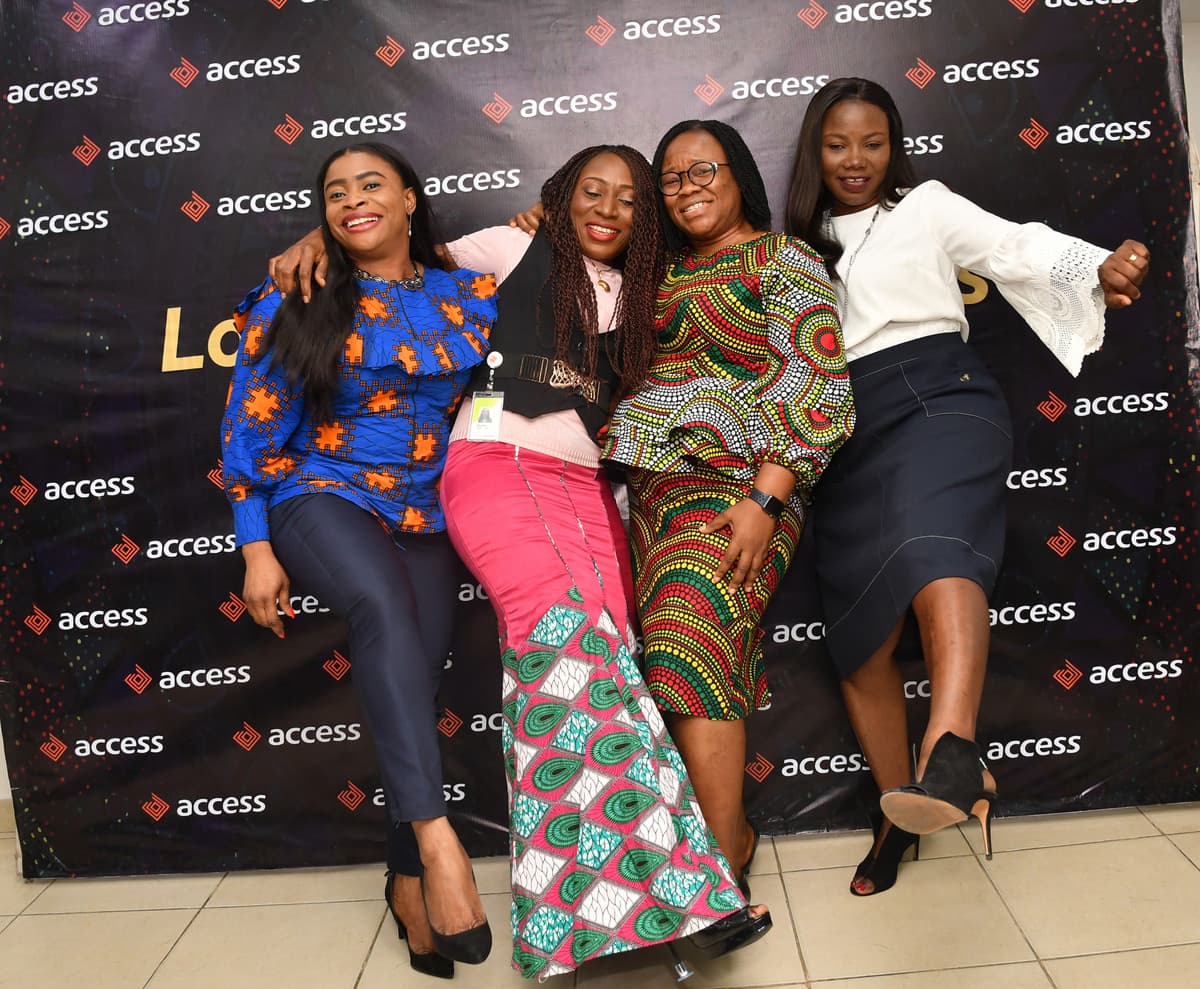
The Access Women Network was formed to support,
develop, promote and retain female employees in the
bank. Since the signing of the Female Network Charter
in 2010, there has been a positive trend in female
representation in the bank. In 2020, the bank’s workforce
was 53% women strong. This is a clear indication
that Access Bank is performing above the industry average
and as stipulated by the Nigerian Sustainable
Banking Principles, 30% of the Bank’s senior roles are
also occupied by women.
The AWN encourages female representation/inclusion
across all cadres of the bank. The Network provides
a support network especially to all female employees,
ensuring gender equality through policies
such as the Human Rights Policy (against harassment),
paternity leave, six months’ maternity leave, as
well as mentoring and leadership programmes.
In 2020, Access Women Network increased its efforts
to ensure that women across the Group were
positively impacted in one way or the other, especially
with a focus on minimizing the challenges of the
COVID-19 pandemic and its associated lockdown in
most areas of our operations. Some of the initiatives
of AWN in 2020 include:o AWN Toastmasters,
which continued at various times throughout the
year.
Project “Make a Family Happy” raised funds to
feed 500 families in June.
AWN webinar, titled, “The Future Is Female, Are
You Ready?”, held on July 29. The main speaker was
Audrey Mothupi, the Chief Executive Officer of the
Systemic Logic Group.
AWN Webinar, titled, “Making Your Money Work
for You”, held on September 11. The keynote
speaker at this event was James Maduekeh, and the
panellists were Ifueko Oduekun, Dharmit Cumar,
Franklin Ayensu-Nyarko, and Oluseun Onasoga.
Free Breast Cancer Screening for AWN members
held in October at selected locations.
Zaron Virtual Experience with AWN, a free online
makeup training, held on November 21.
The annual Orange Lecture held on November
25, themed, “Orange the World: Fund, Respond,
Prevent, Collect!”. Speakers at this session included
Justice Olubunmi Fadipe, Judge, Lagos State High
Court Division; Ini Abasi-Leye, Mental Health Therapist
and GBV Survivor; and the Bank’s Njideka Esomeju,
Head of Personal Banking Division.
Respond, Prevent, Collect!’. Speakers at this session
include Justice Olubunmi Fadipe, Judge, Lagos
State High Court Division, Ini Abasi-Leye, Mental
Health Therapist and GBV Survivor and the Bank’s
Njideka Esomeju, Head of Personal Banking Division.
Women in the Marketplace
The W Initiative
The W Initiative is the bank’s women’s market program
and has inspired, connected, and empowered
women in Africa for over 14 years. The initiative has
a strong presence in Nigeria, Ghana, Rwanda, and
Zambia with an array of offerings tailored to meet
the diverse career, business and lifestyle needs of
over 16 million female customers of all life and economic
stages.
Following the 2020 digital transformation strategy
for the bank, the ‘W’ branded debit card was introduced
to provide exclusive and convenient banking
for female customers. This led to a 65% increase in
debit card adoption by female customers and contributed
to generating over N102 billion ($255 million)
in deposit mobilization.
In the wake of the COVID-19 pandemic, a virtual
desk ‘W Cares’ was introduced to manage gender-
focused complaints and inquiries. Through
our eco-system management unit, we also created a
USSD option to automate collections for Faith-Based
Organizations during the nationwide lockdown.
To help facilitate women’s access to discounted finance,
we stimulated economic expansion by partnering
with Enterprise Sustainability Group (ESG) to
simplify the loan application process and tracking for
women in business. This resulted in over N8 billion ($20
million) debt financing investment in over 1,700 women-
owned enterprises and N18.8 billion ($47 million)
growth in lending to 750,000 female individuals.
To drive awareness and uptake of products, several
product-based campaigns were organized within the
year. These campaigns were conducted virtually, leveraging
social media as a major communication tool.
Some of these campaigns include the W Power Loan
campaign, MHSS campaign, channels adoption campaign
etc. Some of the flagship programs, activities,
and initiatives under the W Initiative in 2020 include:

Womenpreneur Pitch-a-ton Africa
The Womenpreneur Pitch-a-thon recorded 39,982
applications from eight African countries, provided
business capacity building for 50 female entrepreneurs
through a Mini MBA from the International Finance
Corporation (IFC) and produced five grant winners winning
a total of N9.25 million ($23,000.00).
W Webinar series
The W Webinar series is a capacity-building initiative
under the W Academy introduced in response to
the restriction of physical engagements due to the
COVID-19 Pandemic. 17 webinars were organized by
the W initiative with over 6,500 registered participants
from across 32 countries and four continents.
W Health Month
To commemorate W Health Month, we provided free
breast and cervical cancer screening as well as consultation
for 300 women across Lagos, Port Harcourt,
and Abuja.
Women-focused partnerships, alliances and subsidiary engagements
In 2020, we forged new strategic alliances with local
and international organizations such as Nigerian Governors
Wives Forum, Mastercard Foundation, FMO,
She Trades Invest, etc. These partnerships facilitated
a global recognition for Access Bank, as “Bank of the
Year” under the Non-financial Services category by
the Financial Alliance for Women.
The W initiative was also launched in new African markets
in 2020: Sierra Leone, DR Congo, Mozambique,
and The Gambia.
Looking to the next financial year, the W Initiative is
committed to sustaining the provision of suitable
financial and non-financial services that will enhance the lives of women across all life stages and increase their participation in the global economy.
End Female Genital Mutilation (FGM)

Female Genital Mutilation (FGM) is the ritual cutting
or removal of some or all of the external female genital.
FGM is a violation of human rights and poses a risk
to the lives and health of women and girls. Nigeria accounts
for 10% of global cases with Osun state having
the highest prevalence of circumcised women in the
country (77%), closely followed by Ebonyi (74%) and
Ekiti (72%) states.
In a bid to eradicate this harmful practice, Access Bank
partnered with HACEY Health Initiative to commemorate
the International Day of Zero Tolerance for FGM.
The program was held across Osun, Oyo, and Ekiti
states on February 6th, 2020. Traditional leaders as
well as government and community leaders were engaged
in dialogue sessions to advocate for the abandonment
of FGM practices in their communities.
Over 2,000 young girls, CBOs, traditional rulers and
policymakers participated in the programs across the
three states. About 500,000 Nigerians were reached
with online information, education and communication
materials.
International Women’s Day

Gender bias in Nigeria is not only stifling the growth of women but also constraining
the country’s ability to reach its potential. It has been proven that the country’s
Gross Domestic Product (GDP) could grow by 23% or $229 billion by 2025 if women
are allowed to participate in the economy to the same extent as men.
In a bid to accelerate the participation of women and girls in economic development,
Access Bank partnered with Xploit Consult, an organization that is focused on the
furtherance of the SDGs, to commemorate the 2020 International Women’s Day,
themed, “Each for Equal”. The program was themed ‘Women and Girls in Nigeria: Increasing
Participation in Mainstream Development.’ It attracted key stakeholders in
the gender and education spaces, including Mrs. Jokotola Akoni, Deputy Director,
Department of Archives, Federal Capital Territory Administration (FCTA); Mrs. Rashida
Apakhade, Deputy Director, Head Gender, Education Secretariat, FCTA; Mrs.
Stella Uzochukwu Denis, Entrepreneur/Engineer/Robotics Specialist; and Hajia Abdulhameed,
Auditor General, FCT Area Councils.
The program, also aimed at creating an action plan towards reducing the gender
gap in Nigeria by 2030, featured a workshop and an interactive panel session, which
was held in Abuja with female professionals and key stakeholders from all walks of
life. There was also an essay competition for female secondary school students with
the theme, ‘An Equal World: Fostering Economic Growth Through Equitable Participation’,
in which three schools came out tops and were rewarded with cash prizes.
A mentor-mentee platform was also created to match young girls with appropriate
female mentors who will guide their career paths. Over 83 participants benefited
from the programme, which also provided information on gender equality and women’s
rights.
Code4Impact
Access Bank partnered with HACEY Health Initiative
for the Code4Impact (C4i) Program, a learning program
developed to equip young women with digital
and analytical skills to enable them to pursue successful
careers in Science, Technology, Engineering
and Mathematics (STEM) fields. The programme is
aimed at encouraging more women to confidently
choose careers in STEM fields and build digital literacy
in web development, game development, mobile
app and microelectronics.
The program has been very successful such that it
has produced over 10,000 STEM professionals who
add and create value to the organizations that they
go on to join. It has also inspired the Nigeria Women
Techsters program, which has trained an additional
2,000 women and girls across Nigeria.
Back on Track Program
Access Bank Partnered with HACEY Health Initiative
for the Back on Track Program, a program focused
on empowering disadvantaged young girls
and women by providing them with vocational and
business skills, as well as information on sexual and
reproductive health and rights. The program aimed
to empower women and create opportunities for
them to live a healthy and productive life, and it
was held in Ebonyi State, Nigeria. 200 women were
trained in vocational, agriculture business, and life
skills, as well as in networking and marketing, business
management, and mentoring. These skills enabled
the women to set up their businesses in the
production of soap and disinfectants.
International Day of the Girl Child
The United Nations General Assembly declared October
11th as the International Day of the Girl Child
on 19th December 2011, in recognition of girl’s
rights and the unique challenges girls face around
the world. The International Day of the Girl Child
focuses attention on the need to fulfil the human
rights of girls, promote girl empowerment and address
the challenges faced by girls around the world.
To commemorate this day in 2020, Access Bank
partnered with HACEY Health Initiative, a development
organization focused on improving the health
and productivity of underserved populations in Africa.
The Day was themed “My Voice, Our Equal Future”,
and it featured an essay competition for secondary
school students, a safe space leadership and
health workshop for girls, media awareness on promoting
the health and productivity of women and
girls in Nigeria, and the establishment of a media lab
– the first studio in Nigeria dedicated to amplifying
the voice of young girls, training young girls to leverage
on digital media tools to amplify their voices.
The essay competition had over 1,000 entries and
10 best essay submissions were selected. Of the 10
shortlisted essays, three winners emerged: Miss Teniola
Olatunji from Holy Saviour’s College as second
runner up, Miss Shobanjo Adeola from Itolo Girls Junior
Secondary School as first runner up, and Miss Chijindu
Ndubisi from Nigeria Navy Secondary School as
the winner. 3,815 young girls were also reached with
safe space leadership, health & productivity messages
– both online and offline – through workshops, and 30
secondary school visitations.
16 Days of Activism Against Gender-Based Violence
The 16 Days of Activism Against Gender-Based Violence
is an annual international campaign that kicks
off on November 25th, the International Day for the
Elimination of Violence Against Women, and runs until
December 10th, Human Rights Day. The campaign
is aimed at raising awareness on the prevention and
elimination of violence against women and girls.
Access Bank partnered with HACEY Health Initiative, a
health-focused organization to accelerate programs
aimed at ending gender-based violence in Nigeria. The
programs for the 16 Days of Activism included:
The launch of the End Rape Culture website aimed at
promoting messages and stories that encourage
survivors to report and increase awareness.

A Kick-out Gender-Based Violence Campaign
targeted at game lovers and using the launch of
FIFA 21 as a springboard to generate discussions
on ending gender-based violence.
Online summits & exhibitions, including a webinar
held on challenges and opportunities to leverage
innovation and technology to end gender-based
violence.
Media rounds aimed at raising awareness on different
forms of violence against women and girls’
platforms.
The end rape culture exhibitions had 402 participants,
while the end rape culture and gender-
based violence webinar had 319 participants.
The game competition designed to engage young
men on ending rape culture directly reached 297
young men, and the whole campaign reached a total
of 205,000 people via social media and a feature
on Arise TV.
Environmental Stewardship
As an environment conscious bank, Access Bank
has embedded environmental sustainability in its
sustainability strategy, which is approved by the
Board and integrated into its financing decisions.
We have constantly demonstrated our commitment
to environmental protection through our
strong advocacy for environmental conservation
and working in partnership with stakeholders to
collectively tackle issues concerning our shared
environment.
We continued to comply with environmental protection
laws and standards in 2020. We are also
making conscious efforts to curb our greenhouse
gas emissions through initiatives that are
directed at reducing our diesel consumption and
supplementing power supply with solar power
across our various business locations. We maintained
and consolidated our efforts towards reducing
our water consumption, paper use and
waste-to-landfill. The Bank also included environmental
impact assessments and audits of prospective
projects in our carbon footprint reduction
strategy.
Our 2020 environmental performance mirrored
the unexpected positive impact of the coronavirus
pandemic on the environment as experienced globally.
A lot of our consumption indices were drastically
lower, compared to those of 2019. We heavily leveraged
our travel emission reduction strategy by applying
our use of video conferencing to all our work
processes as necessitated by the global lockdown
and subsequent ‘work-from-home’ mandate.
These and other initiatives detailed below ensured
that every unit and process of the bank contribute
to a low carbon economy.
Sustainable Waste Management
We initiated our sustainable waste management
program in 2016 and since then, we have been
championing sustainable waste management in our
key locations, including our Head Office. The incorporation
of recycling has been an integral component
of our sustainable waste management program
and enables us to significantly reduce the
volume of waste that we send to the landfill. Recyclable
waste materials such as paper, aluminium
cans, plastic, glass, and cartons are sorted from over
80 branches and picked up by our recycle partners,
RecyclePoints and ParallelPoint Consult.
To ensure the success of this program, the bank invests
in regular training for all cadre of staff to further
ingrain the benefits of the program and give the
staff a sense of shared responsibility and ownership of
the program. We also upgraded the trucks of the recycling
partners to maximize their capacity and improve
their efficiency in carrying out their function.
We further demonstrated our commitment to sustainable
waste management during the 2020 edition of the
Access Bank Lagos City Marathon, as our recycle partners
were present along the marathon route and at the
finish line to ensure that polyethylene terephthalate
(PET) bottles were picked up and not sent to the landfill.
All of these, and more, enabled the bank to carry out its
responsibility of protecting the environment through
sustainable waste management.
Alternate Energy
The importance of energy cannot be overemphasized
and that is why we have invested in alternative sources
of energy over the years and as a result:
- 605 of our automated teller machines (ATMs) nationwide
are solar powered
- 58 branches are powered by hybrid power sources
All our bank facilities are lit by LED lights
- The Head Office is fitted with motion-sensitive lights
and water-efficient taps
We regularly report, monitor, and evaluate our electricity
consumption across all our branches.
These efforts have contributed to reducing our carbon
emissions, demonstrating our commitment as an organization
to reducing our negative impact on the environment.
Resource Efficiency
We continued to implement processes that help us improve
efficiency and limit our impact on the environment.
One of such initiatives is our ‘No Paper Initiative’,
which helps us to reduce our paper consumption. The
following are activities under the initiative:
- Paper Saving Tips
- Automated Memo Approval System on
ProcessMaker
- Automated Payment System on Dynamic 365
- Use of Diligent BoardBook – an automated and secured
system that has helped to significantly reduce
the number of documents printed for Board meetings.
Water Efficiency
As an advocate of water conservation, the Bank installed
water-efficient flush systems and taps. We also
conduct innovative campaigns and communications
using videos and factsheets to keep staff members in
constant awareness of the need for water management.
Supply Chain
Access Bank’s suppliers are central to our business as
they supply the tools, goods, and services we require to
run our operations effectively and seamlessly, as well as
meet the needs of other stakeholders. We require our
suppliers to deliver high quality products and services,
while making positive contributions to the environment
and society at large. This is in conformance to the United
Nations Global Compact Principles which the bank
is subscribed to.
Vendor Selection Process
Our procurement policy is broad-based, covering the
various areas the bank operates in and hinges on ensuring
that our stakeholders’ concerns are taken into
consideration.
We require our vendors to observe high ethical standards,
as well as ensuring that they take responsibility
as corporate citizens. This is why we structured
our procurement framework to ensure that we carry
out extended due diligence in co-ordination with the
end-users to ensure long term sustainability. Vendors
are engaged according to their capacity and categorized
to accommodate vendors of various economic
strengths.
All our vendors are assessed based on the following criteria:
i. Quality of goods/services
ii. Geographical coverage
iii. Track record
iv. Price competitiveness
v. Problem resolution
vi. Referrals from other institutions
vii. Timeliness of service delivery
viii. Risk assessment
ix. Business sustainability
Local Sourcing
We recognize the complexities associated with
sourcing, such as carbon emissions, violation of
human rights, and potential biodiversity loss. This
is why we encourage our suppliers to source goods
from trustworthy sources closest to the bank as
this not only helps us eliminate the aforementioned
risks, but also ensures the growth of the
local economy and provides an enabling environment
for businesses to thrive.
In 2020, we spent about N197 billion engaging over
100 suppliers across all geopolitical zones in Nigeria.
